
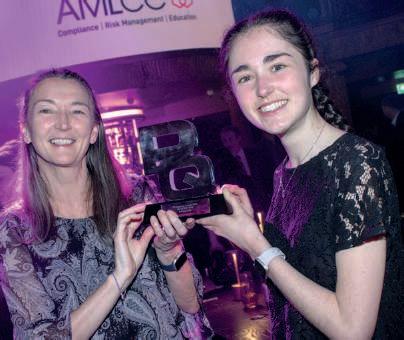



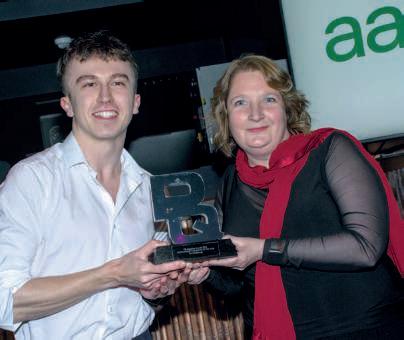
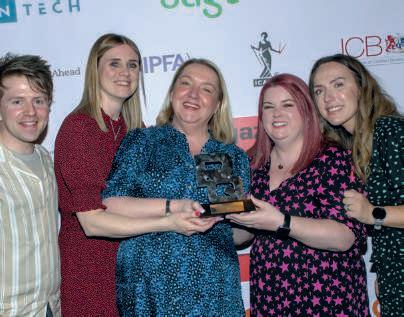







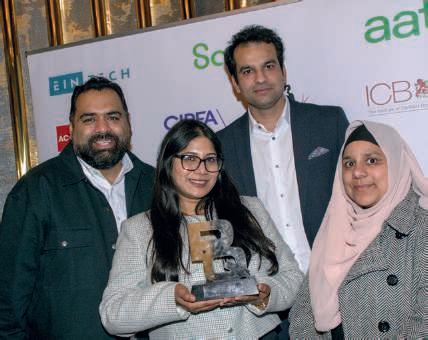
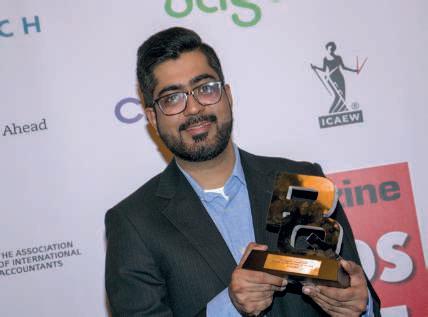


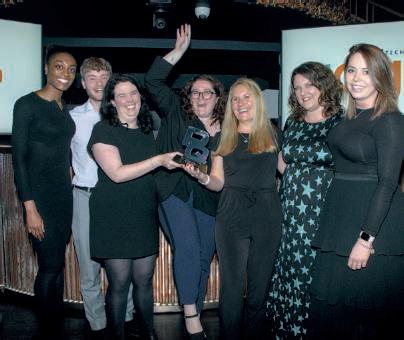



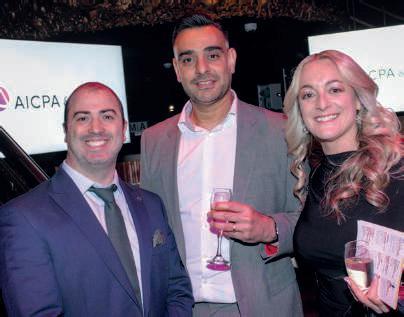
Incorporating NQ magazine June 2024 PQ AWARDS 2024: ALL THE ACTION pqjobs.co EXAMACCATIPS INSIDE



















Tuesday 25 June Royal College of Physicians, London




•Mastering change management: a step-by-step guide for accountancy practices
Shane Lukas, AVN Inspiring Accountants
•Is AI going too fast? What to be mindful of when using this tech trend
Tushir Patel, Capium
•Companies House reform
Henry Vaile, Companies House
•The inner game of self-mastery - exploring mindset, habits, and resilience
Kim Searle, Emotional Mastery Ltd
•Rehumanising your accountancy firm with digital branding
Mike Roberts, Making Digital Real Ltd
BOOK NOW at IFA.ORG.UK/CONFERENCE24 PRICES Member £135 Non-member £160 7.5 CPD HOURS
IFA
2024 @INSTITUTEFA INSTITUTE OF FINANCIAL ACCOUNTANTS INSTITUTEOFFINANCIALACCOUNTANTS INSTITUTEFA
Conference
IN THIS ISSUE

Well, what a night it was! The 21st PQ magazine awards have become the BAFTAs of the accountancy education industry, of that there is no doubt. But they have also become the most chilled accountancy awards around! We have never had so many people dancing so soon on the night. That may be due to the wonderful Jean-Paul Noel-Cephise, the singing accountant.
Check out who walked off with our coveted trophies on YouTube – go to https://tinyurl.com/5n7kd82p
I would like to say well done to all the winners, but my biggest cheer goes to Paul Sizer (pictured below), who won the Lifetime Achievement award. He really has changed hundreds of lives in Wales.
We have all the photos inside, too.
It is great to see our YouTube video of Lord Sikka and the Post Office scandal has also hit 12,000 views. If you haven’t seen it then you can see what he has to say at https://tinyurl.com/mw7apm46
We have lots of news for you, too. There are CIMA, ICAEW and ACCA exam pass rates to ponder, and even a burlesque dancing AAT. We also ask the question: Is exams marked by AI coming to accountancy exams?
And we haven’t forgotten our tips for the ACCA exams either. Graham Hambly, Editor and Publisher, PQ magazine
4 ICAS record
Scottish institute sees highest number of annual admissions in 170-year history
5 ICAEW upgrades app New and improved MyICAEW app launched for studentss
6 Management debate
AAA pass rate soars – to the giddy heights of 38%!
12 Tech news
Software giant launches Sage for Accountants and Sage for Small Business
Features, etc
14 Have your say
Audit is not for everyone – but some accountants love it; and the Post Office scandal continues to shock. Plus our social media round-up
17 PQ Awards 2024
The industry’s top awards night went with a bang – and our photographer Phil Gammon captured all the action. So who walked off with the trophies?
20 ACCA AFM exam
Sunil Bhandari has some top advice on how to get a pass in the Advanced Financial Management exam
23 The business world
36 Non-profit organisations
CIPFA and Humentum are leading efforts on the firstever international non-profit accounting guidance
37 Careers
The rise of AI in the boardroom; our Agony Aunt dispenses more words of wisdom; and our Book Club review
38 Fun
The lighter side of life – and accountancy
The columnists
Lisa Nelson How ‘blurting’ can help you revise better 4
Robert Bruce Chairman’s sangfroid is a lesson for us all 6
Prem Sikka Ofwat must get its sums right 8
Anna Kate Phelan How e-assessment enables ‘real world’ exams 10
Eddie Herbert Demand for carbon data on the rise 12
8 AI and exam marking AI will mark exams and provide feedback in the future, top tutor believes
9 CIMA case study results
All three levels’ pass rates down on previous case study sitting
No proof that diverse management improves performance, academics claim
10 ACCA exam pass rates
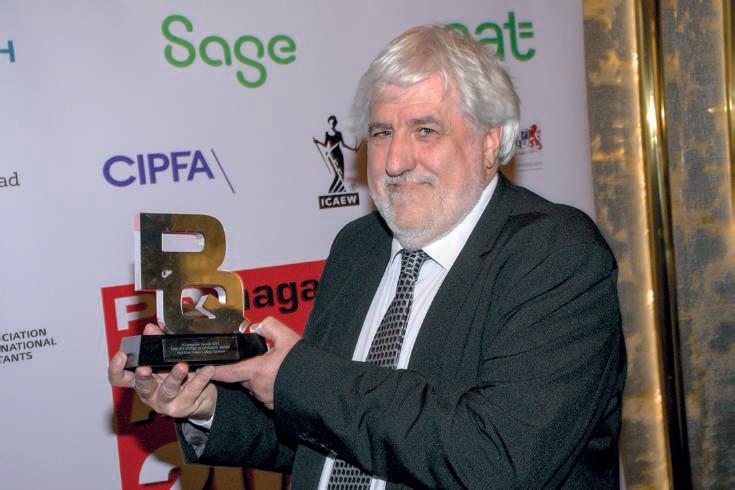

Paul Merison looks at how you can use the lessons learned from the Wirecard scandal
24 CIMA spotlight
A bit of self-analysis can go a long way in helping you achieve your goals
25 AAT spotlight
Karen Groves explains how to approach a re-sit exam to ensure success
26 ACCA SBL exam
In part one of a new series, top tutor Chris Cain explains what the examiner is looking for when it comes to assessing the severity and probability of risk events
27 Sustainability
The ACCA shares its five-point plan for making the world a better place
28 CIPFA spotlight
New research from the institute finds councils are not operating on a level playing field
29 ACCA exam tips
What do the experts think will be tested in the next set of exams?


News
To subscribe for FREE go to www.pqmagazine.com
June 2024
A note from the Editor contents p17 p29 PQ Time to outsource your payroll A fully comprehensive professional payroll service offered for a very low monthly fee. My services will free valuable time to enable you to concentrate on other matters. Call Emma now for full details on 020 8803 6834/07889 885646 or email her at emmaarif@absaccounts-payroll.co.uk
LISA NELSON

Are you blurting?
‘Blurting’ is an increasingly popular revision method (featuring heavily on social media). It involves quickly jotting down everything you remember about a topic without referring to your notes or textbooks. This ‘brain dump’ exercise helps consolidate memory by forcing recall, which strengthens neural connections associated with the information being revised.
The process starts by you choosing a topic and setting a timer, typically for a few minutes. Without any aids, you write down all relevant points, concepts and details that come to mind. Once the timer stops, you compare your ‘blurted’ content with your study materials to identify gaps in knowledge, reinforcing learning through active recall and self-assessment.
Blurting is particularly useful for exams where you need to retrieve information without prompts.
However, blurting does have limitations, especially for exams requiring the application of knowledge to new scenarios, typical of most accountancy exams. Since blurting focuses on memory recall, it won’t fully prepare you for tasks demanding critical thinking, problem-solving or the application of concepts to complex problems. Therefore, while blurting might form part of your revision strategy it isn’t a passport to exam success.
The best approaches to revision will also include the completion of practice questions and mock assessments, with sufficient time spent on critically evaluating your answers against a mark scheme or sample answer to identify gaps in your ability to apply what you know.
Kaplan
In brief
CASSL elects new chair
PwC’s Aydin Bolton has been elected chair of the Chartered Accountant Student Society of London (CASSL), which represents some 6,000 ICAEW students. He takes over the baton from Sunny Yang.
CASSL’s accounts were also passed at the recent AGM (its 141st), showing the society made a net surplus for the year of £24,406, with net assets on the balance sheet standing at
A record year for Scottish NQs
The Institute of Chartered Accountants of Scotland (ICAS) is celebrating a record year, with the highest number of annual admissions in the institute’s 170year history.
Nearly 850 chartered accountants joined the profession at its annual Admission Ceremony in mid-April.
Gail Boag, Executive Director of Learning at ICAS, said: “This year we have 843 newly qualified CAs and it is fantastic to see record numbers join the profession. The increase in admissions reaffirms the strength of the ICAS CA qualification and its appeal to a new generation of jobseekers and employers alike.
“The CA qualification takes those who achieve it beyond the numbers of accountancy and serves as a

passport to the highest levels of business and finance. Testament to that is the fact that ICAS members hold senior positions in 83% of FTSE companies.
“Not only are we seeing record admissions, but we’re also seeing an increasing number of people enter the profession from a wider
Celebrating the first female CA
It was recently the anniversary of Mary Harris Smith becoming the first female chartered accountant in the world (May 1920). To honour her ICAEW commissioned a painting by Toby Wiggins and her portrait now hangs proudly in Chartered Accountants’ Hall. About time is all we can say!
However, Harris Smith was initially denied membership because she was a woman. In 1885, ICAEW President Charles Fitch Kemp said he would be so embarrassed by the

You can’t use AI for your exams!
The Big 4 accountancy firms have been asked to explain what measures they are taking to prevent professionals using ChatGPT and other AI tools to cheat on auditing exams, according to Adam Mawardi of the Daily Telegraph.
The Financial Reporting Council has reportedly contacted the
£234,996, up 11% year-on-year.
• CASSL recent won Student Body of the Year at the 2024 PQ magazine awards, for the second year in a row. Check out all the winners on page 17
Tuition fee inquiry welcomed
The UK’ s Education Select Committee has launched a new inquiry into international student tuition fees. This will be welcomed by universities and businesses alike, who both reap huge benefits
firms and the professional bodies themselves about what they are doing to ensure the integrity of their exams.
The UK accountancy watchdog told the Daily Telegraph it is working closely with these organisations over audit exams monitoring. Only recently the regulator discovered
from the inclusion of international students.
Dr Joe Marshal, CEO of the National Centre for Universities and Business (NCUB), said: “International students deliver wide-ranging benefits to the UK, and we are confident that the inquiry will find that the graduate visa has played a crucial role. We know that international students make a significant contribution – they contribute £41.9 billion to the UK economy. The financial influx from international students
socio-economic background, thanks in no small part to the work being delivered by the ICAS Foundation.”
The Foundation plays a key role in widening the pipeline of talent by supporting young people through their studies and providing individualised support until they graduate.
admission of women that he would rather retire than consider it. It was only after the Sex Disqualification (Removal) Act was passed in 1919 that she was allowed to become the first female chartered accountant.
Harris Smith set up her own accounting firm in 1887 and in women periodicals she was described as the ‘lady accountant’. Harris Smith was 75 when she was finally admitted to the ICAEW.
Women would have to wait until 1979 before they were elected onto ICAEW Council.
dozens of Big 4 employees shared answers when completing online audit exams, with students exchanging answers via WhatsApp.
Some of the Big 4 firms have now told both members and students if they are caught using AI in exams it will be considered ‘gross misconduct’ and they could lose their jobs.
significantly bolsters UK universities. They help facilitate enhanced research, innovation and educational offerings for domestic students.”
Pre-seen ACCA mock exam
PQ magazine and top tutor Chris Cain have joined forces to offer you access to a free ACCA SBL mock exam. The practice paper will be uploaded on 25 May and you can even have it marked for a small fee! For more go to page 22
PQ the PQ Magazine June 2024 4
Lisa Nelson is Director of Learning at
AAT Dance Floor Hero
Rushtons Chartered Accountants’ very own Stacey Whelan (MAAT) has made it to the Dance Hero Finals. Her story was recently picked up by the Blackpool Gazette, which ran with the headline ‘I’m a boring accountant by day and burlesque dancer by night’!
Whelan will be among
Stacey Whelan

the 12 finalists in the 2024 Dance Floor Heroes Show at the Blackpool Winter Gardens Empress Ballroom on Friday 14 June.
The event has been called ‘Strictly for real people’, and Whelan will be paired with a professional partner (Ping) for the
The winner is…
It has been called ‘the biggest night in the accountancy education industry’, and the 21st PQ magazine awards certainly lived up to its reputation.
As ICB CEO Ami Copeland said: “I cried, danced and sang along with drag queens – not a normal Monday night!”
Her favourite moment of the night was meeting the PQ Graduate of the Year Tim

Mickleburgh and his gorgeous mum (pictured). She explains: “Your success story had me
competition.
All the monies raised will go to Tia’s Crown – a local charity which supports well-being and mental health through dance.
Whelan started dancing with tap and musical theatre and then went on to burlesque dancing with her pal – and it all spiralled from there.
She is running a ‘Burlesque and Bubbles’ fundraiser for the charity on Friday 31 May, with friends and fellow finalists Loie McNeill (an NHS accountant) and Linda Adams. Here is a link to her fundraiser page: https://tinyurl.com/5n7sbmp7
blubbing away. Your determination and drive are so inspiring – proving that if you get your head down and do it, success in accountancy can be yours.”
CASSL’s Aydin Bolton said: “Such a fun evening filled with lots of entertainment and smiling faces from all across the industry… a night to remember.” He has every right to be smiling, as CASSL took home Student Body of the Year for the second year in a row. Check out all the winners on page 16
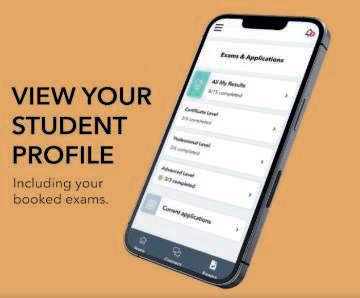
The new student app
Have you downloaded the MyICAEW app yet? Once downloaded, the new student app lets you can access your exam results and view your student profile (including your booked exams).
You can also read all the latest articles and catch up with the ones you missed.
There are also podcasts to listen to and you have access to the latest helpsheets. There also a chance to get involved in the online community too, helping you to grow your network.
To find out more go to https:// ow.ly/o7h750R2cM8. Download your Student app at Apple Store or Google Play.




PQ 5 PQ Magazine June 2024 PQ news
For more information and to receive 15% off your ICB Exemption application, call ICB HQ on 0203 405 4000 and quote ICBPQ Email us at exemptions@bookkeepers.org.uk www.bookkeepers.org.uk/PQ PQ with AAT, ACCA, ICAEW or CIMA? Why wait? Join ICB today! Fast track your career by using your existing qualifications to join the world’s largest bookkeeping organisation. As a Certified ICB Bookkeeper you’ll benefit from: Professional status and recognition Free legal and technical advice-line Local and national events Resources, webinars, templates and help sheets Accounting news, emails and updates Discounts with 100s of retailers including Sainsbury’s, Tesco, ASOS, and Curry’s And being part of a community that really cares The Institute of Certified Bookkeepers
ROBERT BRUCE
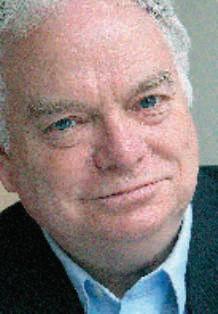
Chairman’s sang-froid a lesson for us all
I spent my afternoon at an annual general meeting the other day. It was one that I have been to before and had sworn never to go to again. In the past it has been rendered chaotic by people who are obsessed with detail or who have an ego the size of a planet. This year it ran to almost four-and-a-half hours. Why on earth had I gone along other than to vote at the appropriate points? The answer was to watch the Chairman play an absolute blinder.
I have always enjoyed AGMs, perverse as that might seem. In my early days as a journalist they were events where news and information could be prised out of the proceedings and the various executives there. I developed a technique of watching closely and spotting the hidden fault lines. But this one was different.
The Chairman, who could not have been blamed had he groaned aloud at some of issues raised, simply maintained a sunny demeanour. He greeted various bête noire of years past as old friends. He listened. He summoned up other executives to provide emollient explanations. At no time did he appear exasperated. He let the meeting run. And by the simple principle of being firm but fair, and above all friendly, he won what could have been a difficult day. It was a case study and an example to us all.
Robert Bruce is an award-winning writer on accountancy for The Times
Institute question time
Accountancy syllabuses will reflect the changes in the profession such as sustainability, technology and AI, but the fundamentals aren’t going anywhere, said ICAEW’s education chief Will Holt.
When it comes to AI, Holt said the question is what won’t AI be able to do. There will, Holt said, still be the role for accountants to ensure ethical behaviour, talk to clients, and interpret the data.
CIMA’s Stephen Flatman
Where is the evidence?

Two accounting academics say there is no evidence that diverse management teams boost profits, laying waste to four McKinsey reports which claim there was!
The new research by Professor Jeremiah Green and Professor John Hand directly disputes the
claims that diversity is a ‘business imperative’ that drives financial results.
The pair tried to reproduce the McKinsey findings, but said the firm would not let them see the data or tell them which companies they looked at. So the two academics
used the S&P 500 to look at their performance over a four-year period.
The professors concluded that McKinsey’s studies lacked robustness and should not be relied on.
They said: “In contrast to McKinsey’s results, the key finding of our study is that we observe no statistically significant difference between the likelihood of financial outperformance as measured by the industry-adjusted EBIT [earnings before interest and tax] margin of S&P 500 firms during the years 2015-2019 in the top versus bottom quartiles of S&P 500 firms ranked on McKinsey’s executive racial/ ethnic diversity metric measured in mid-2020.”
ACCA results publication dates change
ACCA has told students that both the December exam results dates for both 2024 and 2025 will be five days later than normal.
So, instead of waiting up on Sunday night for the results to be released on the Monday, students will be up on Thursday and receive their results on a Friday.
This means the December 2024 exam session results will be released on 17 January (16 January midnight), and the December 2025 results will come out on 16 January
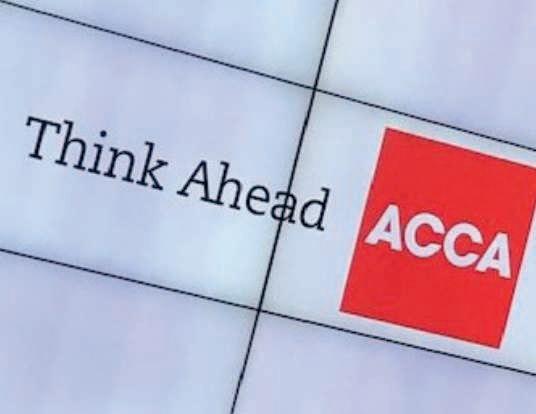
(15 January midnight).
Interestingly, the ACCA also announced that there will be no late entry period for the March
2025 exams. Entry for the March 2025 exams will have a standard deadline of 17 January, with no late entry period.
ACCA apologised for any inconvenience and explained these changes were needed to “support operational improvements we’re making and will ensure exam integrity is maintained”.
It said: “As always, our numberone priority is for all students to receive a fair and accurate result based on their exam performance.”
Equipping accountants for sustainability
The International Federation of Accountants (IFAC) has unveiled proposals to change the International Education Standards (IES) so they embed sustainability – from analysis to reporting to assurance – across aspiring professional accountants’ training.
IFAC CEO Lee White emphasised the significance of the changes, stating: “Investors and other stakeholders need sustainability reports and
stressed that AI won’t replace your job, but someone with AI will. He also felt we are still a long way from outsourcing decision making to AI.
Audit risk and response
As part of his recently nominated ‘Exam World Meets Business World’ series, LSBF’s Paul Merison is creating three short podcasts covering the big three exam topics for the ACCA Audit and Assurance exam.
disclosures that are on a par with the high-quality, decisionuseful financial reports that accountants already deliver. To be future-fit, accountants must develop the right competencies to meet this need. The proposals provide a robust framework for the progression to develop capable accountants who produce report, and assure sustainability information.”
Key proposals include:
The podcasts will focus on an ‘answering approach’ rather than the technical understanding needed.
First up is Audit Risk and Response, at only 12 minutes or so long. Check it out at https://lnkd.in/ e3VFZnDf. The recordings will be useful for any audit student.
• Exam World Meets Business World was shortlisted for Podcast of the Year at the recent PQ magazine 2024 awards. Check out his article on the demise of Wirecard on page 23 of this issue.
• Emphasising working with experts and in multi-disciplinary teams.
• Introducing key sustainability reporting concepts, such as systems thinking, value chains and scenario analysis.
• Referencing relevant sustainability reporting and assurance standards.
• Creating new assurance competence area and learning outcomes.
Little Book of Secrets
CIMA students have been reminded that if they have case study anxiety then there is somewhere they can go. There is a new Little Book of Secrets that provides preparation support advice 48 hours leading up to your exam. Check it out at https://bit/ iy/49yPir3
The book shows you how to learn from candidates who have been there and done it, and helps you understand what the examiner is looking for.
6 PQ the PQ Magazine June 2024
In brief
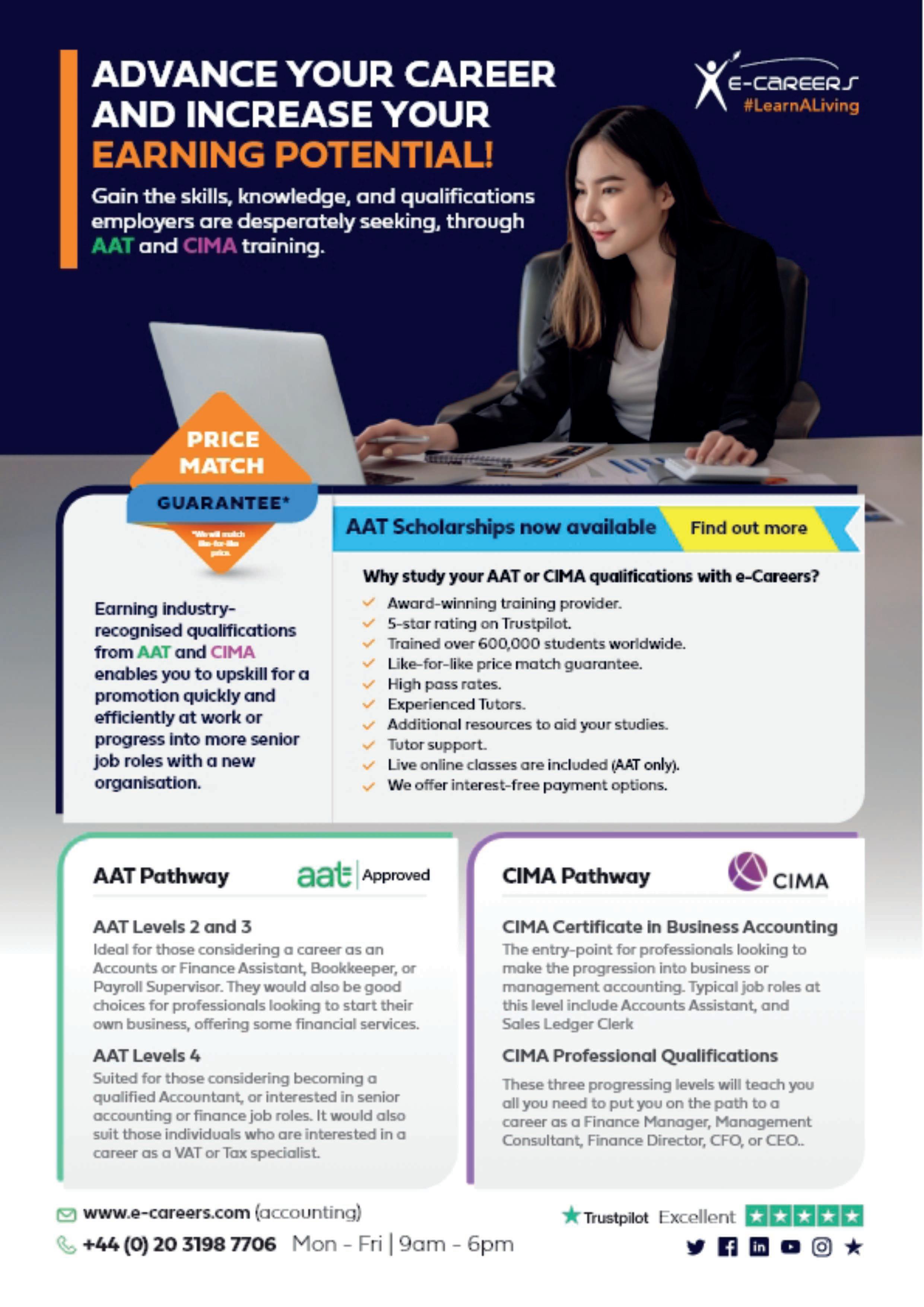
PREM SIKKA

Ofwat must get its sums right
Accounting students know that financial leverage, or gearing, provides an indication of financial risks and resilience. It is usually calculated by focusing on the debt-to-equity ratio.
However, water regulator Ofwat uses debt-to-assets ratio to calculate leverage. Its estimates of leverage for major water companies are as follows: Thames Water, 78%; Northumbrian Water, 68%; United Utilities, 66%; Southern Water, 70%; and Yorkshire Water, 70%. These are well above Ofwat’s preferred ratio of 60%.
The traditional debt-to-equity ratio results in the following calculation of leverage: Thames Water, 1023%; Northumbrian Water, 1005%; United Utilities, 545%; Southern Water, 520%; and Yorkshire Water, 504%.
The Ofwat calculation understates financial risk. As any mention of leverage makes a distinction between debt and equity, Ofwat’s calculation conjures up the impression that companies have higher equity than they actually do.
The debt-to-assets ratio is problematical because water companies capitalise parts of their interest payments and repair and maintenance expenditure which they consider to be an enhancement.
The total value of capital assets forms the basis of price rises permitted by Ofwat. Companies are allowed to earn a return, which is dependent on their weighted average cost of capital (WACC). Ofwat uses the Capital Asset Pricing Model to estimate WACC. Measurement of leverage is a key input into calculation of WACC.
As water companies face uncertain futures, more questions are likely to be asked about estimates of their leverage.
Prem Sikka is Emeritus Professor of Accounting at the University of Essex
Tax briefs
Austerity not needed
The Taxing Wealth Report 2024 shows that austerity is not needed in the UK, says chartered accountant and academic Richard Murphy.
He said that instead we can have decent public services employing appropriately paid people, and we can invest in our future.
Murphy explains that making 30 relatively simple changes to existing UK taxes could raise up to £90 billion in new tax revenue.
Exams marked by AI is coming
How would you feel if your professional accountancy exams were marked using AI, asked VIVA Financial Tuition’s Hugh Martin (pictured).
He said he didn’t think any tutor or lecturer jumps out of bed at the prospect of marking essay scripts, “although it is incredibly important work, it can be tedious and repetitive”.

Martin feels that AI marking exams and providing feedback is coming, especially since many professional accountancy papers consisted of typed inputs which are easy for AI to analyse. He explained services already exist for this.
The potential benefits of AI include less subjectivity, faster delivery and lower costs.
ACCA exam fees rise again
ACCA has unveiled its exam fees rises for September 2024, and many mirror the UK average rises of around 5.7%. This year’s rise follows rises of between 5% and 7% in 2023.
The association said that persistent inflation continues to drive up its costs, at a time when it is adding lots of new resources for students. Last year it launched ACCA Study Hub, and this quickly followed the ACCA Practice Platform and MyExam
Performance.
For UK students, the cost of sitting the Applied Skills papers goes up from £154 to £163.
The biggest rise comes in the SBL exam where June sitters will pay £263 and September sitters pay £278.
It may have been happening for some time, but PQ magazine has only just noticed that there is no longer a late entry fee for remote sitters. They pay the same standard fee up until the deadline date.
New insights podcast
ICAEW has launched an ICAEW Student Insights podcast, hosted by Jag Dhaliwakl.
The aim of the podcast is to broaden a student’s knowledge to help them become a betterrounded professional, as it covers the topics they need to know to get ahead in the workplace. Its relevant for all accountancy students.
The first episode – called ‘Artificial intelligence: accountant’s friend or foe?’ – can be found at https://ow.ly/xvV050RcUiQ
In this first episode, Dhaliwal
Some of the changes include charging VAT on the supply of financial services, charging an investment income surcharge of 15% on income earned from interest, dividends, rents and other sources, and investing £1 billion in HMRC.
Download the report at https://tinyurl.com/scyn7y
Some 295,250 tax returns already in!
Almost 300,000 self assessment customers filed their tax return in
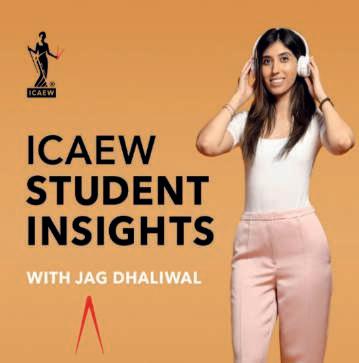
discovers how emerging technologies are influencing the
the first week of the new tax year –that’s almost 10 months ahead of the deadline.
HMRC has revealed almost 70,000 people filed their return on the opening day this year (6 April), and it is obviously encouraging more people to do it early and not leave it until January.
Last year more than 246,000 people submitted their assessment between 6 April and 12 April 2023.
People may need to complete a tax return for the 2023 to 2024 tax year and pay any tax owed if:
However, the worry is that the depersonalisation of the process will annoy the exam-taker – you, the PQ.
Philip Meagher, co-founder and CEO at learnsignal, said: “This raises a much bigger question. If AI can correct a question on Interest Rate Swaps, then AI can perform Interest Rate Swaps, in which case the accountant needs to adapt to stay relevant.
“The real question should be whether what we are assessing is still relevant in an age of AI.”

The late fee for those wanting to sit at an exam hall has risen to a whopping £448 for the Strategic papers.
work of accountants.
The episode covers:
• The current and anticipated applications of new technologies in accountancy.
•The evolving roles and responsibilities of accountants as a result.
• The need to apply professional scepticism to new technologies.
• How accountants can continue building their skills and knowledge around technology.
Dhaliwal gets the inside track across these topics from two sector experts: Daniel Clark, business trainer and writer, and Fay Bordbar, Global Digital Skills Lead at Mazars.
• They are a self-employed individual with an income over £1,000.
• They have received any untaxed income over £2,500.
• They are renting out one or more properties.
• They claim Child Benefit and they or their partner have an income above £50,000.
• They are a partner in a partnership.
• Their taxable income earned from savings and investments is more than the £10,000.
8 PQ the PQ Magazine June 2024 news
CIMA case study pass rates are down
CIMA’s February case study results are in, and they aren’t a great comparison to previous pass rates.
All three level pass rates are down on the previous case study sitting in November last year – between five and nine percentage points.
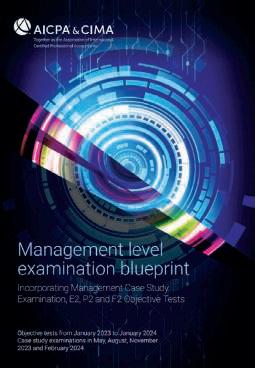
For the Strategic level gone it seems are the days of the 71% pass rate achieved in November 2022. This time around the pass rate was 54%, and only the August 2023 pass rate of 48% has been lower in the
past two years of sittings.
The same is true for the Management case study pass rate. At 60%, this is a drop of five percentage points on the November 2023 pass rate.
Finally, the Operation case study pass rate of 59% is the first time a cohort of students hasn’t managed a pass rate in the 60% range since November 2021.
CIMA CGMA Case Study pass rates
March ACA exam results
In all, 4,112 ICAEW students sat exams in March 2024. Most students (2,425) opted to sit just one paper, and the pass rate for these PQs was 71.9%. That means 682 students (28%) will be sitting that paper again.

The pass rate for students sitting two and passing two papers was higher, but only marginally,
at 72.2%. Another 16.9% of sitters passed at least one out of the two.
The 80% pass rate for those sitting FAR UK GAAP should also not be taken out of context – just five students sat this paper in March, meaning four passed and one failed!
For the first time the results also showed the pass rates for Europe

versus the rest of the world. This is a move that has to be praised, and PQ magazine would like to see other bodies follow suite.
ICAEW March 2023 Professional Level paper pass rates: Audit & Assurance 76.4%; Business Planning Taxation 70.6%; Business Strategy & Technology 86.7%; Financial Accounting and Reporting (IFRS) 73.4%; Financial Accounting & Reporting (UK GAAP) 80%; Financial Management 80.2%; Tax Compliance 77.4%
Marco Amitrano to head PwC UK
From 1 July 2024, PwC UK and Middle East will have a new senior partner in the form of Marco Amitrano.
The current managing partner and head of clients and markets will succeed Kevin Ellis and ‘reign’ for four years.
Before training to become an ICAEW, Amitrano studied for a master’s degree in electrical and electronic engineering at the University of Newcastle, and is a graduate of Columbia Business School, New York.
Born in Italy and raised in Luton and Dunstable, Amitrano is also a keen runner.
He was the only man on the ballot, either of the other two candidates would have become the first-ever woman to be in charge of PwC UK. There has, however, been a suggestion that Middle Eastern partners prevented the appointment of a woman as the firm’s new boss.
The firm Civica carried out the election process for PwC, but does not provide a breakdown of the results. The firm is insisting the election was carried out in a fair and transparent way.


PQ 9 PQ Magazine June 2024 PQ news
Feb Nov Aug May Feb 20242023202320232023 Operational 59%68%69%64%68% Management 65%58%67%72%60% Strategic 54%59%48%62%56%
ANNA KATE PHELAN
Were you jumping for joy?

The changing world of exams
I usually give my general musings on the latest in education and technology in this column. But in my day job I’m very proud to lead a fantastic team in the development of the e-assessment platform Rogo.
Last month, Anna Howard, esteemed Head of Qualifications and Membership at CIPFA, kindly came to our offices in Shoreditch for a chat about all things Rogo in our doeswhat-it-says-on-the-tin webinar, Rogo Live! (check it out on LinkedIn and the Rogo website if you fancy).
CIPFA (PQ Accountancy Body of the Year in 2023) are a highly regulated body and as such we have worked together to ensure the highest standards for candidates, employers and the sector at large.
Howard highlighted that e-assessment enabled real-world examples to be utilised in exams. For instance, no accountant working in the modern world is being asked to put together a statement of financial position or income statement without the use of a spreadsheet. Additionally, she highlighted that the use of different question types such as dragand-drop and checkbox matrix allow bodies to assess candidates in deeper ways than previously.
On that note, the e-Assessment Association will be putting on a free online conference, ‘Beyond Multiple Choice’, on 29 and 30 October. Join us in talks about how the assessment industry is changing and the ways in which AI may change testing as we know it.
Something went very right with the ACCA AAA exam this March, as the pass rate jumped to 38%. We haven’t seen a pass rate like this since June 2015, when it was 40%. The worry will be that we get a repeat of what happened in the next exam in 2015 – the September pass rate slumped to 29%!
Sitters are still struggling with APM, with two out of three sitters failing in March. The pass rate was 33%, and it seems permanently stuck at this rate, despite all the resources ACCA puts into to helping

students.
AA had the distinction of having the lowest pass rate of the Applied Skills paper, with a pass rate of 44%, this time around.
The PM pass rate jumped from
AI and degree devaluation
Universities need to embrace artificial intelligence instead of seeing it merely as a tool to aid or catch cheats and devalue degrees, says Danny Bielik, president of the Digital Education Council.

Plagiarism is a persistent challenge and AI rapidly increases the volume, ease and access of
this old scourge, says the Council in a new report. It said: “AI tools enable very high-quality academic misconduct, while AI detection tools lack sufficient accuracy and reliability. Rather than investing in AI detection tools that become obsolete almost as quickly as they are implemented, we recommend universities build a
42% last time out (December 2023) to 45% in March. That is the highest PM pass rate since June 2010.
At 53% the TX pass rate was exactly the same as the March 2023 pass rate. The same is true of the 52% FR pass rate.
Meanwhile, the FM pass rate stayed nice and high at 48% (it is all relative).
ACCA March 2024 exam pass rates: TX 53%; FR 52%; PM 45%; FM 48%; AA 44%; SBL 52%; SBR 49%; AAA 38%; AFM 46%; APM 33%; ATX 49%
resilient educational value chain.”
However, the Council found that university leaders are more worried about degree devaluation, particularly where the prestige of a degree relies on its exclusivity. As one top-tier university put it: “We give a small number of students a badge and that badge has enormous value because we’re highly selective.” AI has the potential to disrupt this over the medium term by enabling the delivery of high-quality, personalised education at scale and at a very low cost.
IASB simplifies FR for subsidiaries
The International Accounting Standards Board (IASB) has issued a new IFRS Accounting Standard for subsidiaries.
‘IFRS 19 Subsidiaries without Public Accountability: Disclosures’ permits eligible subsidiaries to use IFRS Accounting Standards with reduced disclosures.
IFRS 19 will resolve current challenges by:
• Enabling subsidiaries to keep only
one set of accounting records – to meet the needs of both their parent company and the users of their financial statements.
• Reducing disclosure requirements – IFRS 19 permits reduced disclosures better suited to the needs of the users of their financial statements.

Andreas Barckow, IASB Chair
(pictured), said: “IFRS 19 reduces costs in the financial reporting ecosystem, especially for companies, while meeting users’ information needs. It simplifies the reporting for subsidiaries by permitting the global financial reporting language to be applied throughout the group.”


FRC hands out multi-millionpound fines to PwC and EY
The Financial Reporting Council’s Executive Counsel has issued fines to PwC, EY and Oliver Clive & Co (OCC) over failures in the audits of London Capital & Finance plc (LCF).
PwC has agreed to pay £4.9m and EY £4.4m for their failures of the audit of the minibond firm. Both also received a severe reprimand. PwC audit engagement partner Jessica Miller was given a £105,000 fine. EY’s Neil Parker was fined £47,250. Meanwhile, OCC received a financial sanction of £42,000 along with a severe
reprimand.
In all, £9.5m in fines were dished out.
LCF went into administration just under a year after the 2017 audit report had been signed off (in February 2018). It was in that period that a significant proportion of the unpaid bonds were issued. While it is not asserted that any of the auditors would necessarily have detected the underlying issues with the company if the breaches had not occurred, all failed to provide the reasonable assurance that the financial statements taken as a whole were free from material misstatement, whether caused by fraud or error, which is the objective of any statutory audit.
The sanctions imposed take account of a
number of factors including the seriousness of the breaches and the financial strength of the auditor, as indicated by the turnover of the firm.
Jamie Symington, Deputy Executive Counsel, said in relation to all three audits: “In each of these three audits the auditors failed to identify and assess the risks of material misstatement through understanding LCF’s business. These breaches are made considerably more serious by the fact that all of the auditors knew they were auditing an expanding business which was engaged in selling unregulated financial products to retail investors, and that potential investors might place reliance on the clean audit opinions.”
10 PQ the PQ Magazine June 2024 news
Anna Kate Phelan is Head of Product at Eintech
ACCA ALP Genesis Origo
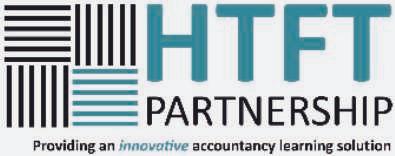
WŝĐŬ�,d&d ĨŽƌ���d�
�e h�ve � ��n�e o� live cou��e� �o� ��d�>ĞǀĞů�ϯ��nd >ĞǀĞů�ϰ�unde� YϮϬϮϮ, �o co��le�en� ou� on�de��nd o��ion� �� ��� �� �nd ��� ,d&d live� ��e��eco�ded ��ll��u� video� �h�� le�d in�o �cheduled live online in�e��c�ive ����e�cl���e� ��i�h e��e�� �u�o���� �ll de�i�ned �o �u��o�� �ou� ����e�in� o� �no�led�e –�cco���nied �i�h co��u�e� ���ed �e��� �nd �oc� e���� �o� �o�e in�o����ion vi�i� ����h�������ne��hi��co�u��cou��e������


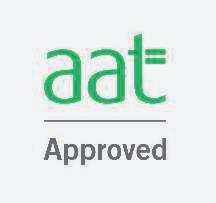

dŚŝŶŬ����� �ƚŚŝŶŬ�,d&d
�e h�ve � �ull �ui�e o� ������ƉƉůŝĞĚ�^ŬŝůůƐ��nd ^ƚƌĂƚĞŐŝĐ�WƌŽĨĞƐƐŝŽŶĂů�cou��e�.
▪ �e��e��hi� o� ou� vi���n� KŶůŝŶĞ�>ĞĂƌŶŝŶŐ��ŽŵŵƵŶŝƚLJ �nd �cce�� �o � dedic��ed �u�o�
▪ ���� ����ne��hi� ��uden� no�e� �nd ���� �u�ho�i�ed ��ud� �e��� e��� �i� �nd �oc�e� no�e�
▪ �ull ��ll��u�� �o�ic �� �o�ic �eco�din�� �u��o��ed �� �i�e���led ‘live online’ dƵŝƚŝŽŶ ����e�cl��� �e��ion� –�eco�ded� do�nlo�d��le �nd �l����le on �ll device�
▪ Scheduled ‘live online’ ZĞǀŝƐŝŽŶ ����e�cl��� �e��ion� – �eco�ded� do�nlo�d��le �nd �l����le on �ll device�
▪ ���� co��u�e� ���ed �e��� �nd �oc� e����� ����ed� �i�h �n��e�� �nd video de��ie�� �o� �o�e in�o����ion vi�i� ����h�������ne��hi��co�u��cou��e���cc��
^ƚƵĚLJ��/D� �ĐŚŽŽƐĞ�,d&d
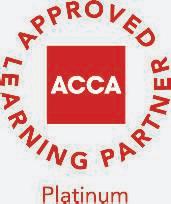
S�ud�in� ����� �u� ,d&d live� ,d&d on�de��nd �nd ,d&d �l�� �e�ou�ce� ��e �ll he�e �o hel� �ou ��e���e �o�� �nd ����� �ou� e����
,d&d live� �oin ou� e��e�� �u�o�� live online �o� in�e��c�ive ����e�cl���e�� de�i�ned �o �u��o�� �ou� ���lic��ion o� ��ll��u� �no�led�e�
,d&d on�de��nd� d�ive �ou� le��nin�� �i�h �ull �le�i�le �e�ou�ce� �h�� �ou con��ol
,d&d �l��� �o��e�� o� �o�ic �eco�din� �nd ��o�icienc� e�������le ���c�ice ���e���en�� �o� �o�e in�o����ion vi�i�� ����h�������ne��hi��co�u��cou��e��ci��
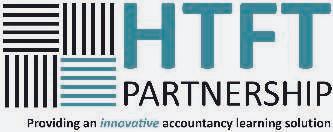

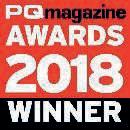
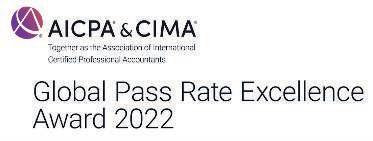

^ ^ƚƚƵĚLJ ǁ ǁŝƚƚŚ , ,dd&d d WĂƌƚƚŶĞƌƌƐŚŝƉ ǁ ǁŚLJ ǁŽƵůĚ LJŽƵ ŐŽ ĂŶLJǁŚĞƌĞ ĞůƐĞ tŚLJ ǁŽƵůĚ LJŽƵ ŐŽ ĂŶLJǁŚĞƌĞ ĞůƐĞ &Žƌ ƌ ŵŽƌƌĞ ŝŶĨĨŽƌŵŵĂƚŝŽŶ ĞŵŵĂŝů ŝŶĨĨŽΛŚƚĨƚƉĂƌƌƚŶĞƌƐŚŝƉ ĐŽ ƵŬ Ŭ ǁǁǁ ŚƚĨƚƉĂƌƚŶĞƌƐŚŝƉ ĐŽ ƵŬ KŶůŝŶĞ��ŽůůĞŐĞ�ŽĨ� ƚŚĞ�zĞĂƌ�ϮϬϭϳ WĞƌƐŽŶĂůŝƚLJ�ŽĨ� ƚŚĞ�zĞĂƌϮϬϭဒ WƌŝǀĂƚĞ�^ĞĐƚŽƌ��ŽůůĞŐĞ� ŽĨ�ƚŚĞ�zĞĂƌ�ϮϬϮϬ
EDDIE HERBERT Demand for carbon data on the rise

Sustainable investing is now mainstream, with investors evaluating companies not just on financial performance but also on environmental, social and governance (ESG) factors that can impact long-term profitability and risk. This shift has businesses scrambling to bolster their ESG credentials and reporting.
Of all ESG metrics, corporate carbon footprint data is under the most intense scrutiny from sustainable investors. As climate change’s economic threats become increasingly apparent, investors want to know which companies are meaningfully reducing greenhouse gas emissions and which are ill-prepared for a low-carbon future.
This has driven an increase in demand for reliable carbon footprints across all scopes of emissions. Investors need this data to construct ESG scores, comparison reports and climate risk analytics to inform capital allocation decisions. For accountants, guiding clients to measure and report their carbon footprint is key not just for environmental reasons, but also to maintain corporate valuations and appeal to investors.
Investment managers recognise that companies without a handle on their carbon accounting face higher regulatory, physical and transition risks that can reduce shareholder value.
As sustainable investing momentum accelerates, accurate carbon accounting is quickly becoming a necessity for corporations to attract capital, meet stakeholder demands for transparency and demonstrate preparedness for the net zero economy. Those who fail to prioritise credible emissions reporting and reductions may find themselves shut out of certain investment portfolios entirely.
Edward Herbert, Sales & Business Development Manager, Net Zero Now
IRIS updates
IRIS has unveiled a series of product updates for IRIS Elements, its cloud accountancy platform. IRIS has over 24,000 accountancy customers, of which some 6,000 are now using Elements to run their practice.
The new updates mean customers will be able to produce accounts for LLPs and leverage interconnected data through APIs. As part of the tax updates customers will now be able to communicate as an agent directly with HMRC and
Sage launches Sage for Accountants
Sage has launched two new suites in the UK and Canada which it hopes will transform how small businesses and accountancy practices operate and grow.
Sage for Accountants and Sage for Small Business brings together Sage’s accounting, HR and business management tools into two solutions.
There are three membership plans available – Essentials, Standard and Premium – all of which can be scaled to match users’ needs.
As part of the launch UK customers will be the first to get their hands on Sage Copilot, a new, generative AI powered

productivity assistant. Integrated within Sage for Small Business and Sage for Accountants, Sage Copilot is designed to transform operations by automating routine
administrative tasks and offering real-time business insights.
At a launch event at the Shard in London, Sage CEO Steve Hare (pictured) said he felt the industry is at a game-changing moment. He said Sage Copilot was going to have a profound impact on the profession. However, he stressed there are still questions around trust, and he does not want to play that down.
Hare said that Sage Copilot has to be accurate – 100% accurate – and that is why it has been restricted. So, when it goes out on the internet it doesn’t search everywhere; it will, for example, go to official government sites for tax tables.
AI teething issues still there
There are still some teething issues with the successful industrywide rollout of artificial intelligence, according to new research from Dext.
In its latest report, ‘AI and The Future of Accounting’, Dext says this is due to a lack of confidence and clarity to understand whether AI is a threat or an opportunity.
The report said the debate about whether AI is here to take our jobs is going to rumble on for some time. However, it said a
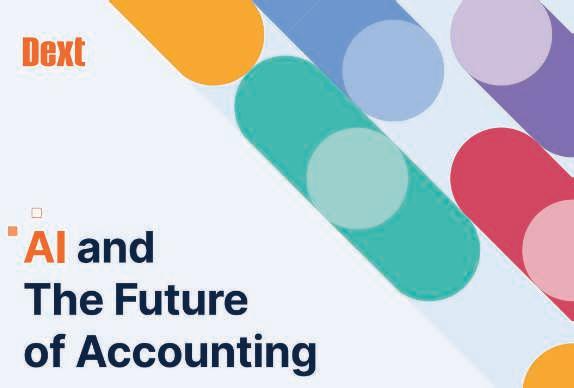
more pertinent concern is around AI’s use of data.
The authors of the report also
Drones – a power for good!
One announcement in the Spring Budget that might have gone under the radar was the Government’s investment in drones for the emergency services.
However, PwC stressed an equal focus should be given to integrating drone data with existing systems.
PwC’s head of drones (yes, there
avert compliance penalties with better visibility of deadlines.
From this summer a new Time and Expenses capacity will be added.
Mindscape platform launched
Deloitte and ParalympicsGB have launched a new digital experience ahead of Paris 2024. The Mindscape platform allows users to get into the mind of a real Paralympian. You can choose your avatar and complete tasks, all while learning about the
really is one), Craig Roberts, said: “It is encouraging to see that the government is investing in drones for incident response in the emergency services. The unique perspective offered by drones can assist decision making at critical incidents, increase the speed of deployment, reduce costs and enhance data
challenges around accessibility and the lived experience of disabled people.
Deloitte’s Mark Lillie said: “Technology can have a huge impact on the way people engage with sport, whether spectating or playing.”
NCSC has new boss
The National Cyber Security Centre (NCSC) has announced Richard Horne as its new CEO. Horne, who will join the NCSC in the autumn, will also become a board
said: “Excel was met with resistance when it was first introduced. And it has been a similar story for cloud accounting in more recent years.”
Interestingly, it is suggested that the more junior members of accountancy firms have more time on their hands. And the type of work they do (the more mundane) means they are often best placed to spot efficiency savings. For the full report go to https://tinyurl.com/2h7adyre
collection and quality.
“However, it is important to note that these benefits will not be fully realised simply by buying drones, training pilots and putting governance in place. To unleash the power of drones, the government should give equal focus to ensuring that drone captured data is effectively processed, centrally stored and fully integrated.”
member of GCHQ.
In a press release, the NCSC said he will lead the UK’s national technical authority for cyber security as it continues in its mission to make the UK the safest place to live and work online.
Horne joins the NCSC from PwC UK; prior to joining the Big 4 firm he was managing director of Cyber Security for Barclays PLC. He was seconded from Barclays to the Cabinet Office in 2011 to help shape and drive the Government’s first Cyber Security Strategy.
12 PQ the PQ Magazine June 2024
Tech briefs tech news











Founded by AICPA® and CIMA®, the Association of International Certified Professional Accountants® powers leaders in accounting and finance around the globe. © 2023 Association of International Certified Professional Accountants. All rights reserved. 2307-444079 Get future-ready skills the flexibly with the CGMA Finance Leadership Program (CGMA FLP). A digital-first learning and assessment platform, the CGMA FLP lets you progress at your pace, reduces formal exams and helps you qualify for new global job opportunities upon completion. Master new skills and uncover opportunities with the CGMA® Finance Leadership Program. VISIONARIES VISIONARIES BOARDROOM WANTED Find out more at aicpa-cima.com/flp.

In love with audit
I read your lead story ‘Audit at the crossroads’ (PQ magazine, May 2024) with interest, as I wanted to be an auditor after I graduated.
However, I am sure this is not the first time you have suggested no one wants to be an auditor, or highlighted the fact that auditing was not a proper career choice! Why does everyone have it in for audit?
Like many before me I trained with a firm that put almost all of its trainees in the audit department. After three years of training most, like myself, knew that audit was not where they wanted to be and moved on. However, I am still friends

with many accountants who stayed in audit and who have really enjoyed their work. In fact, they have found auditing to be a really meaningful career.
But what they do tell me is that regulation and standards just keep growing, which puts pressure on them and is making auditing more and more a tickbox process.
I think the current problems with auditing are more about accounting as a whole. New recruits are forced to work long hours by partners who did the same, so seem reluctant to change. But change it must, and technology should help here.
And there’s an easy way to address retention and attraction problems – pay audit trainees more! A well-paid auditor who can achieve a good work-life balance will be a happy auditor.
Name and email address supplied
Our star letter writer wins a fantastic ‘I love PQ’ mug!
Post Office shame
I see the Justice Secretary Alex Chalk has now confirmed that the UK government has set aside £1 billion of compensation to pay out to the victims of the Post Office scandal. They have also said they will pursue Fujitsu, who developed the Horizon software, if they are found to be at fault. But we need to keep up the pressure for this to happen. I really enjoyed your YouTube video by Lord Sikka on the role of accountants in the scandal. Like many I would support his call for a new inquiry looking specifically at their role in it all. Isn’t this a job for the Financial Reporting Council? It seems to have been very quiet through all of this.
Name and address supplied.
The Editor says: Lord Sikka’s take on the scandal now has some 12,000 views. You can check out his arguments for a new inquiry at: https://youtu.be/jkCWvJt0l6A We really like what one viewer said: “I can understand that many mistakes were made by Post Office Ltd and by Fujitsu. I can understand that the people responsible for these mistakes sought to conceal them by lies and obfuscation, so as to protect

themselves. What I will never understand is why they thought they should continue their deceitful ways when it became apparent that innocent subpostmasters were being caused immense harm by these lies and deceptions. This total lack of humanity and morals, coupled with personal greed, is heinous. I have
watched some of the Post Office Inquiry interview sessions. I am appalled that many of the people responsible for this scandal are still not telling the truth. It is obvious that many of their responses are untrue and in many cases simply ‘ridiculous’. Their sworn oath to tell the truth means nothing to most of these people.”





We recently held the PQ magazine’s 21st awards ceremony at Lio London. Of course at any awards ceremony there will be winners – but there are going to be a lot more losers! Libby Walklett didn’t win Personality of the Year (and she is a big personality), but she posted: “You could say I didn’t win last night, but I definitely felt like a winner.” She continued: “I instigated a huge ‘cuddleoff’, culminating in me literally chasing Graham Hambly round the venue when he refused to give me a cuddle after being missed off my top 15 cuddle list.” In the end she caught Sage’s Jason Haddon (pictured).
However, one winner was PQ of the Year Grazia Maria Pia Salcuni. She told LinkedIn: “Being shortlisted as PQ of the Year was already a big achievement and made me very happy about it. All the other finalists were all incredible people, so I didn’t expect anything more. At the end of the night, the last winner announced was PQ of the Year, when the name was announced I actually asked those at my table if it was me and yes, I was the one! I still have no words to describe how wonderful it was, I still don’t believe, but that’s my name on that award! A huge thanks to my family, because no matter the distance (1,320 miles, to be specific) you’re always with me. Grazie famiglia!”
Until next year!
PQ Magazine PO Box 75983, London E11 9GS | Phone: 07765 386489 | Email: graham@pqmagazine.com Website: www.pqmagazine.com | Editor/publisher: Graham Hambly graham@pqmagazine.com | Associate editor: Adam Riches | Art editor: Tim Parker
Nelson, Anna Kate Phelan, Tony Kelly, Phil Gammon, Edward Netherton, Francesca Cullaney | Subscriptions: subscriptions@pqmagazine.com | Origination services by Classified Central Media
you have any problems with delivery, or if you want to change your delivery address, please email admin@pqmagazine.com Published by PQ Publishing Ltd © PQ Publishing 2024
Contributors: Robert Bruce, Prem Sikka, Lisa
If
email graham@pqmagazine.com



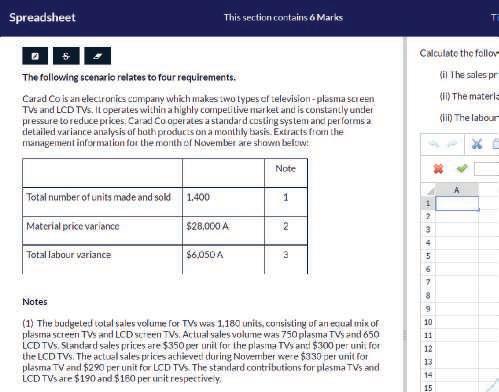
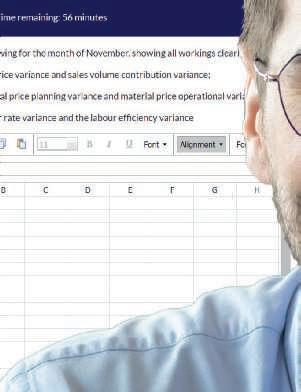















Developed with accountants in mind. Visit getrogo.com for your free trial Accurate replications of questions from ACCA, AAT, CIMA, ICAEW & ICB. Discover fully-functioning spreadsheet features for your accountancy training. Discover Rogo.

Oh what a night!
So who walked away with one of our coveted PQ magazine trophies? All is revealed...
Lio London was rocking for the 21st PQ magazine awards. Jean-Paul NoelCephise, our singing accountant, was back and this time he was singing Motown! Margo and Envy were also on hand to ensure the dancing never stopped!
So, who walked off with this year’s PQ trophies? PQ of the Year was Grazia Maria Pia Salcuni, an ACCA student who works at Aspen Insurance Group. NQ of the Year went to Bethany Duffy of Grant Thornton. She was our PQ of the Year in 2020, and since then has finished both her AAT and ICAEW qualifications.
The Student Body of the Year winner was the Chartered Accountant Students' Society of London (CASSL), for the second year in a row.
The much-coveted Private Sector College of the Year award went to Kaplan, who ensure “the success of every learner is at the heart


of our business”. The Kaplan Learn Better podcast also won on the night.
Newcastle University Business School are now Public Sector College of the Year, and FME Learn Online the Online College of the Year.
Premier Training were at it again, and they landed the Study Resource of the Year for their ‘Every1counts’ series.
Accountancy Body of the Year went to the ACCA, who have introduced a student hub, a pre-seen case study and are even trying to tackle the problem with the optional pass rates through its useful tips podcast.
Personality of the Year was CIMA President Sarah Ghosh, who helped to get the dancing going with some slick moves!
The Editor’s awards on the night went to the AAT, Will Boardman and the Creative accounting project. The Lifetime Achievement award went to the wonderful Paul Sizer.



STUDENT BODY OF THE YEAR: Chartered Accountant Students’ Society of London (CASSL)
ACCOUNTANCY BODY OF THE YEAR: ACCA
PRIVATE SECTOR COLLEGE OF THE YEAR: Kaplan
PUBLIC SECTOR COLLEGE OF THE YEAR: Newcastle University Business School ONLINE COLLEGE OF THE YEAR: FME Learn Online
PRIVATE SECTOR LECTURER OF THE YEAR: Ahmed Shafi
PUBLIC SECTOR LECTURER OF THE YEAR: Lim Keong Teoh, University of Winchester STUDY RESOURCE OF THE YEAR: Premier Training
INNOVATION IN ACCOUNTANCY: Icarus accounting simulation App, UCL & Lynsie Chew
BEST USE OF SOCIAL MEDIA: Bee Motion PODCAST OF THE YEAR: Kaplan’s Learn Better Podcast
TRAINING MANAGER/MENTOR OF THE YEAR: Zeeshan Ahmed
ACCOUNTANCY TEAM OF THE YEAR: The Financial Systems Team at Christie NHS Foundation Trust
GRADUATE/APPRENTICE TRAINING PROGRAMME OF THE YEAR: Buzzacott LLP
ACCOUNTANCY PERSONALITY OF THE YEAR: Sarah Ghosh
EDITOR’S SPECIAL AWARD: Creative Accounting, a collaboration between QMUL, Coventry University & Monash University; Will Boardman’s YouTube channel; AAT advisory group initiative
ACCOUNTANCY APPRENTICE OF THE YEAR: Diana Hume
DISTANCE LEARNING STUDENT OF THE YEAR: Katie Robinson
ACCOUNTANCY GRADUATE OF THE YEAR: Tim Mickleburgh
NQ OF THE YEAR: Bethany Duffy
PQ OF THE YEAR: Grazia Maria Pia Salcuni
PQ 17 PQ Awards 2024 PQ Magazine June 2024





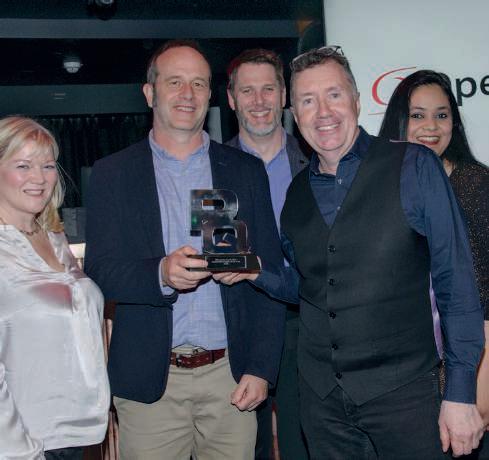



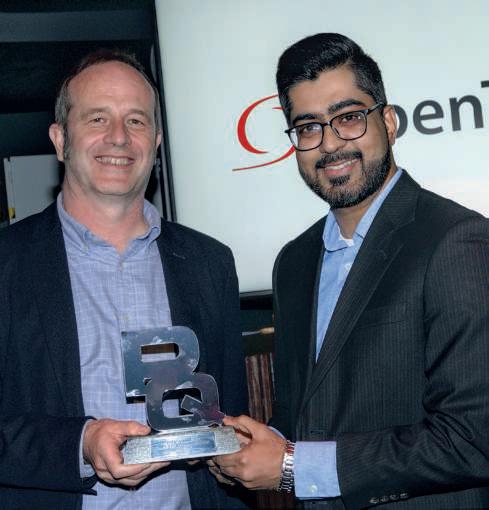
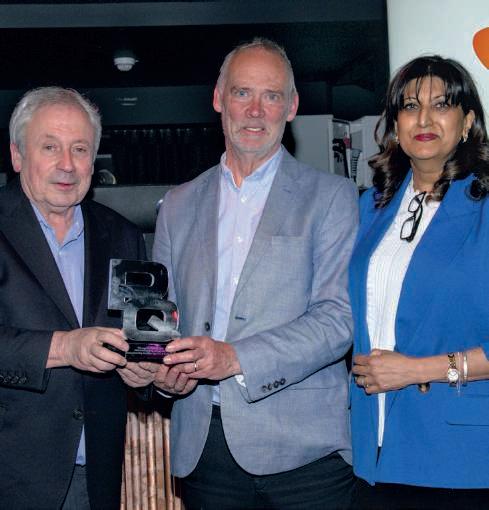
PQ 18 PQ Awards 2024 PQ Magazine June 2024
OF THE YEAR
STUDENT BODY
Chartered Accountant Students’ Society of London (CASSL)
Lio London was the venue for the PQ awards 2024
ACCOUNTANCY BODY OF THE YEAR ACCA PRIVATE SECTOR COLLEGE OF THE YEAR Kaplan PUBLIC SECTOR COLLEGE OF THE YEAR Newcastle University Business School ONLINE COLLEGE OF THE YEAR FME Learn Online PRIVATE SECTOR LECTURER OF THE YEAR Ahmed
PUBLIC SECTOR LECTURER OF THE YEAR
STUDY RESOURCE OF THE YEAR Premier Training INNOVATION IN ACCOUNTANCY Icarus accounting simulation App, UCL
NQ OF THE YEAR Bethany Duffy
Shafi
Lim Keong Teoh, University of Winchester
& Lynsie Chew






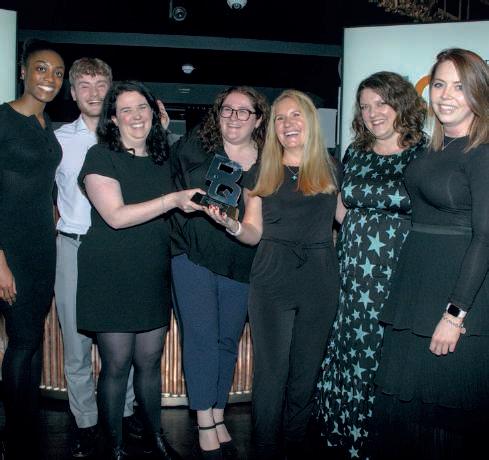


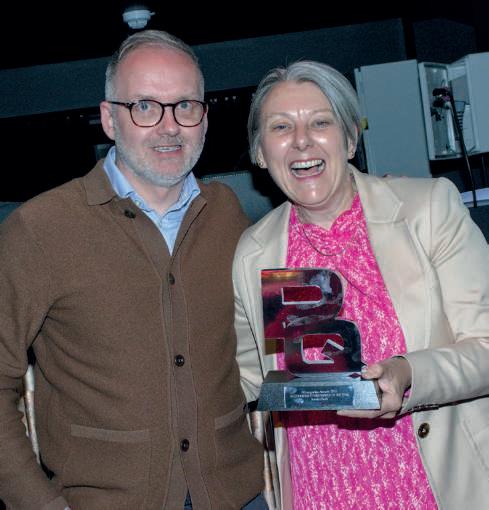


PQ 19 PQ Awards 2024 PQ Magazine June 2024 ACCOUNTANCY TEAM OF THE YEAR The Financial Systems Team at Christie NHS Foundation Trust BEST USE OF SOCIAL MEDIA Bee Motion GRADUATE/APPRENTICE TRAINING PROGRAMME OF THE YEAR Buzzacott LLP PODCAST OF THE YEAR Kaplan’s Learn Better Podcast ACCOUNTANCY PERSONALITY OF THE YEAR
TRAINING MANAGER/MENTOR OF THE YEAR
Sarah Ghosh
Ahmed ACCOUNTANCY APPRENTICE OF THE YEAR Diana Hume ACCOUNTANCY GRADUATE OF THE YEAR Tim Mickleburgh PQ OF THE YEAR
Zeeshan
EDITOR’S SPECIAL AWARD Creative Accounting, a collaboration between QMUL, Coventry University & Monash University EDITOR’S SPECIAL AWARD Will Boardman’s YouTube channel EDITOR’S SPECIAL AWARD AAT advisory group initiative
Grazia Maria Pia Salcuni
Meet the leading players
Lights, camera, action! Sunil Bhandari directs you as you learn the script that will get you a pass in the Advanced Financial Management exam

You probably thinking that I am about to write about a film or a play. Not quite (though after my recent trip to India, I would love to be a Bollywood actor!).
What I want to emphasise in this article is that for those studying or planning to study ACCA AFM, keep in mind the topics and skills that repeat over and over again. They are very important, and this is why I call them the leading actors in ACCA AFM.
So, who are these leading actors?
Net present value (NPV)
All ACCA students (as well as those who are qualified) will be familiar with NPV. It is a major part of ACCA FM and is tested in every exam in that paper. It is only natural that this continues in AFM. However, there are wider issues to accrue for in my exam.
AFM students will still be expected to ascertain the NPV for domestic projects as they did in FM. However, AFM candidates also have to be comfortable with foreign projects (FX NPV). In addition, the adjusted present value (APV) is a version of NPV when projects are predominantly or exclusively financed using debt.
When talking about NPV within ACCA AFM
it is not only about project appraisal. It’s also about the extensive use of the spreadsheet ‘NPV function’. This replaces the need to compute the discount factors. It allows students to jump from ascertaining the project cash flows to the final NPV.
But the spreadsheet NPV function is used in different parts of ACCA AFM.
Bond valuation is regularly tested in ACCA AFM, especially as part of questions on cost of capital. The NPV function takes the future cash flows received by the bond holder and using the yield to maturity (YTM) as the discount rate produces the bond value. This again eliminates the need to use discount factors.
Finally, the NPV function is also used in business valuations. The entity value is present value of future free cash flows to the company discounted at the current weighted average cost of capital (WACC). Alternatively, the equity value is the present value the future free cash flows to equity discounted using the cost of equity (Ke). In both these cases, the NPV function comes into play here to save lots of time.
Free cash flows
Talking about free cash flows, here we have
another leading actor in AFM.
As mentioned above, there are two types of free cash flows. Free cash flows to the company (FCFCo) and free cash flows to equity (FCFe). These appear in several parts of the AFM syllabus. When talking about NPV above, the cash flows used to ascertain the NPV of a project are the future FCFCo. Also, as stated, one of the business valuation methods uses future FCFCo.
The FCFe also appears twice within ACCA AFM. Firstly, as a part of dividend policy. The FCFe is the dividend capacity value for a particular year. This is the maximum dividend that can be paid by the company.
The FCFe, along with the cost of equity, are used to find the value of the equity as part of business valuations.
Internal rate of return (IRR)
The IRR is defined as the discount rate that leads to an NPV of nil. In FM, it is part of investment appraisal as an alternative project appraisal method. The same applies in AFM.
In both FM and AFM there is a spreadsheet ‘IRR function’ that can compute the IRR for a string of future cash flows. However, in FM this can only be used for the Section C questions. Also, the old interpolation method still appears there. This is not the case in AFM, the IRR function is dominant.
The IRR function is also used within the section on bond finance. If given the bond price and the future bond cash flows, the IRR function can be used to find the yield to maturity (YTM) of the bond. This YTM can then be converted into the cost of debt by simply multiplying the YTM by (1 – tax rate).
Finally, in AFM the IRR has a variant that counteracts the weaknesses of the standard IRR. This is the modified IRR. And guess what, in AFM we have a ‘MIRR function’ to make things easier once again for the students.
Conclusion
So, for those studying ACCA AFM or planning to, you are now aware of the key players, the leading actors that appear in many parts of this film. I am not saying the other actors like risk management are not important. Far from that. But the lead actors have more words to say in the ACCA AFM film.
• Sunil Bhandari, ACCA AFM Tutor at FME Learn Online

20 PQ PQ Magazine June 2024 ACCA AFM exam


To celebrate, we are offering 25% off AAT Accounting courses and 20% off AAT Bookkeeping courses throughout May.
We offer interest-free instalment plans for all courses, as well as FREE Xero accounting software training and certication.
Please contact us on 01469 515444 or info@premiertraining.co.uk with any questions you may have.
You can also enrol online at: www.premiertraining.co.uk


Get Started Today
Start your studies the same day24 hour online access with instant access to tutor support.
Learning Resources
Award winning learning resources including printed books, eBooks & e-learning, videos and quizzes.
Assignments
Prompt marking turnaround –marked by a tutor (not a computer).
Xero Advisor Certication
Premier Training has teamed up with Xero and is pleased to offer the Xero Advisor Certication Equivalency Course FREE OF CHARGE to anyone who enrols. We are the AAT Distance Learning Training Provider of the Year! www.premiertraining.co.uk 01469 515444 Training Provider Winner Distance Learning Provider of the Year AWARDS 2024 Study Resource of the Year
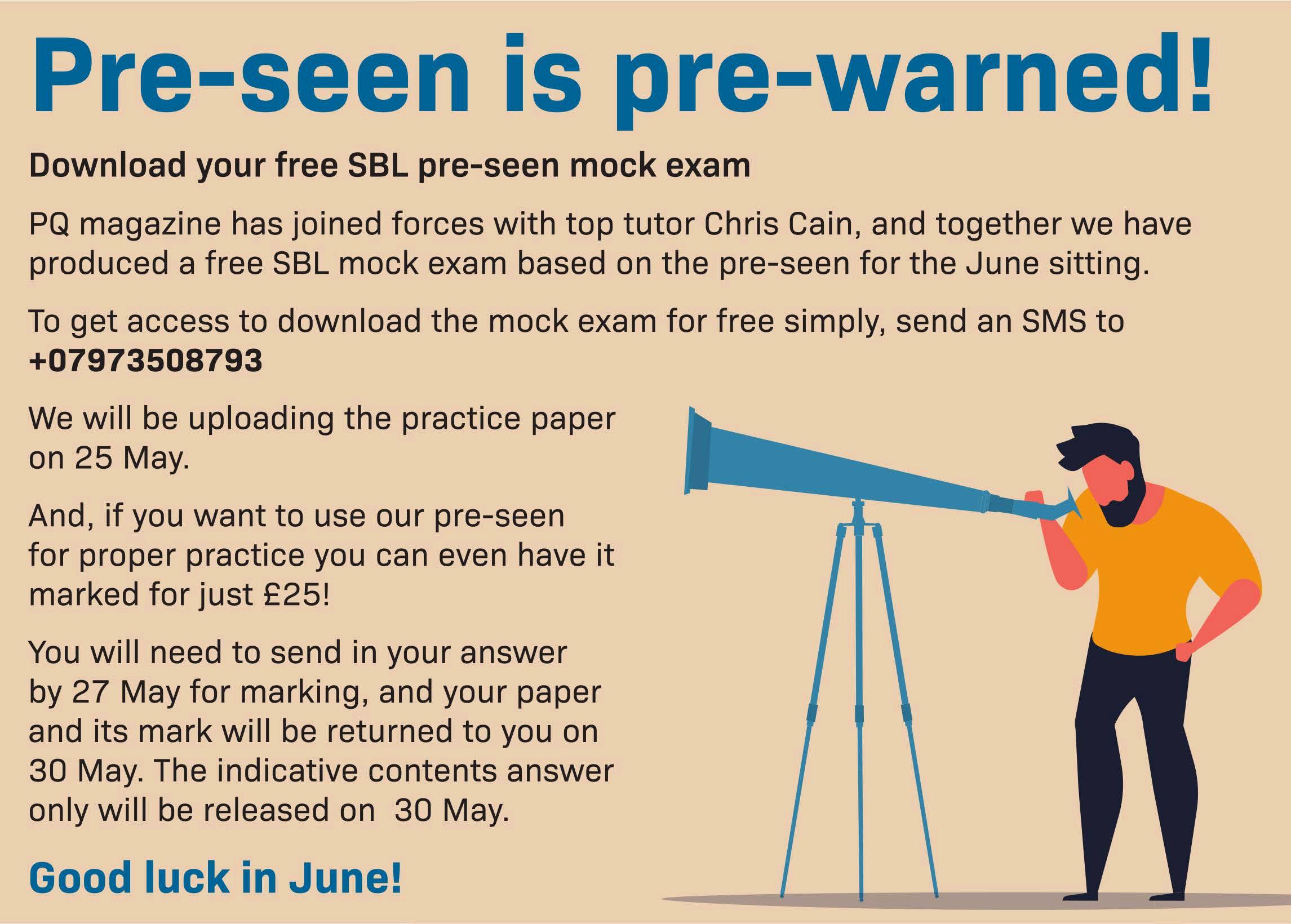


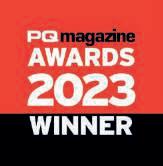

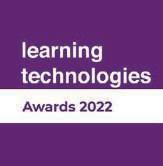
Advance your career with an award-winning course or apprenticeship Flexible, inspiring and engaging. Mindful Education courses are expertly designed to bring learning to life and achieve outstanding results. Discover more mindful-education.co.uk/learners
Lessons from Wirecard’s demise
Paul Merison looks at how you can use the lessons from the business world and use them to your advantage in your exams
The COO was in fact a Russian spy who used the company to fund covert operations.
Allegedly.
If only the spy story was relevant to your exams! Unfortunately it isn’t, but obviously it is interesting so that is the bit the media highlights. That is your problem as a student, reading the business news. Everyone tells you it is a must to see the real-world application of what you are learning, but the news stories are not written for accounting students.
So let me rewrite Wirecard for students… Wirecard, a top listed German company that collapsed in 2020, admitted that $2bn of cash in bank accounts was not there. Stolen? Or perhaps it never existed? We may never know. The ex-CEO is being prosecuted and the COO… see above.
EY, the auditors of Wirecard, received a fine and a ban from taking on new audit clients in Germany, and perhaps more importantly suffered reputational damage due to their perceived failure to check something as basic as cash at the bank. Wirecard creditors and shareholders who lost everything are suing EY for billions. Let’s learn from this:
1. Directors who cheat go to great lengths to avoid discovery
I feel slightly sorry for EY. Yes, they failed to check balances directly with the banks, but when they tried to actually visit the overseas banks themselves they were heavily controlled by Wirecard management and the bank visits seem to have been ‘staged’, with staff paid off in advance to supply false information. Once Covid hit and actual bank visits were impossible, a video call was held where allegedly a fake bank branch with actors was used.
2. Self-review threat
If auditors fail to spot a big problem in year 1, they have a big incentive not to spot it in year 2 or year 3 – as that would suggest they failed in year 1. We will never know how early EY suspected foul play, but the penalties against EY tell their own story.
3. When it seems too good to be true… Wirecard grew massively and quickly and seemed very successful. It wasn’t real. The lack of scepticism (professional marks!) shown by auditors, regulators, seasoned investors, etc., is extraordinary, and can only be put down to greed and a fear of missing out on backing what most thought to be a winner.
4. Corporate governance matters
Good governance is no guarantee of success, but weak governance often fuels disaster. Dominant executives who ignore controls and surround themselves with supporters so as to evade being challenged – it is never a good sign. That was Wirecard, with a Chairman and other NEDs who were allies of the CEO. So much

for independence.
The worrying thing is that German corporate governance regulations allowed all this to happen, as the rules were far behind that of other countries such as the UK. Germany has now tightened things up, which is nice, if a little late.
5. Auditors must not let directors influence their audit work
EY were taken to the actual bank by Wirecard management and escorted during meetings to confirm balances. Even worse, when testing control systems EY allowed Wirecard to select samples for them to test, and even allowed Wirecard to supply payment cards to allow them to act as fake customers (audit students… test data!). But this meant Wirecard could ensure those payments showed up where they wanted them to show up, making fake sales to fake customers appear real.
6. Companies with multiple ethical question marks are best avoided Wirecard did payments processing for gambling and porn sites. Many other companies did not want to touch these industries. But Wirecard also miscoded their
sales to hide the gambling and porn from regulators in countries where such sites were illegal.
To top it off, anyone who criticised Wirecard suffered online and physical intimidation or had their reputations attacked.
Red flags galore.
7. Companies who use shortcuts to avoid regulatory processes do so for a reason Wirecard got listed status by ‘reversing’ into an existing listed company. They also got banking accreditation by buying a small existing bank. One has to question why they preferred shortcuts over proper regulatory applications.
The Wirecard story has so many angles it is impossible to do it full justice in this article. Students wanting to learn from this and other real-world business stories should get hold of my ‘Exam World Meets Business World’ podcast (PQ Awards Finalist 2024), freely available from Spotify, Apple podcasts and others.
• Paul Merison is the director of Professional School at London School of Business and Finance (LSBF)
PQ 23 PQ Magazine June 2024 the business world
Forging your own path
Nasheen Wuisman explains how a bit of self-analysis can go a long way in helping you achieve your goals
Your career is your call! You dream it and will achieve it – but how will you get there? It takes years to qualify, so there will be many life changes and challenges in this time. No two candidates have an identical journey to gaining their CGMA designations. Your unique path will be paved with your own unique circumstances, strengths and weaknesses.
Self-awareness of your learning, working and home environment, and how these fit in with your personal goals, is a great starting point to make sure you use what you are good at to seize every opportunity you wish to make the most of.
Your CGMA qualification features a situational analysis tool, used for strategic planning within an organisation. Here, you can use the SWOT (Strengths, Weaknesses, Opportunities, Threats) analysis to take control of your study journey and further your personal growth.
Let’s SWOT analyse
Get a piece of paper and write down the four headings. Under each heading, think carefully about how they relate to you and your circumstances. Here are a few possible examples:
Strengths
• I have a supportive family and/ or study buddies at work
• I rarely have to work overtime
• I get time off work for exams and/or study
• I am interested in the subject material
Weaknesses
• My typing speed in slow
• I struggle with calculations
• I get overwhelmed easily and

this leads me to procrastinate
Opportunities
• I can further my career with the many varied options the CGMA qualification will give me
• I could use online study options so that I can study while I am away from home
• I could try to set up/join a study buddy network on Facebook or WhatsApp
• I can access lots of free resources in the CGMA Study Hub
Threats
• I am starting a new project/job and don’t know how study will fit in
• If I take up exemptions from previous study, I may have knowledge gaps
• I’ve never been great at written exams, so I worry about the Case Study
What now?
Firstly, take a moment to absorb the insights from your analysis. Make sure it is complete and honest, so that you can use it successfully to
guide your studies and, so you are working in a way that is best suited to you.
Leverage your strengths. Your personal characteristics have got you this far. Consider how you can use them to maximum advantage? For instance, if you are a selfstarter then proactively draw up a study plan. Use this strength to self-motivate, and to keep moving forward. These strengths are going to help you reach your goal. Focus on your weaknesses and what you have learnt from them. This will allow you to adapt as you get further into your learning journey. Everyone has areas they struggle with and where they could improve. Gaining awareness of these weaknesses is the first step. After that, work on them, devote a bit of time to them, allow time for practice and absorption. If you are a slow typer, then use a free online tool which helps you to get that little bit faster – some weaknesses will always remain, but you are in control of trying to turn some of these around, they won’t stop you from achieving your goals, Seize opportunities that you need
for your personal improvement and growth. Look at your ‘opportunity list’ – every statement beginning with “I could…” turn into “I will…”. Developing a mindset of determination to achieve gives your CGMA studies the best possible chance of success. These are the things which will give you the edge. You don’t want to look back in a few months and think “I wish I had done those things when I had the chance”. If your circumstances allow it – take it!
Manage threats to stop them derailing your progress. Mitigating these is not realistic so don’t even try. Minimising the impact they have on your journey is the aim. Can your employer help you address any of your concerns? Should you be looking at taking up online courses to plug knowledge gaps? It is better to be prepared for these things than to simply hope everything will turn out OK. Be in control, take the action you need, reach out to us at CIMA for help –that is what we are here for.
Treat your SWOT analysis as a live document rather than a oneoff exercise. Be reflective and come back to it once a month and see what weaknesses you have addressed, what steps you have started to take to address the threats and which opportunities you have reached out to. You will find that you have developed some new strengths as well! We grow and develop all the time. Be self-aware, take control of your learning journey, revel in your progress and keep that goal in mind – always!
• Nasheen Wuisman, Senior Manager of Global Academic Progression at AICPA & CIMA, together as the Association of International Certified Professional Accountants




24 PQ PQ Magazine June 2024 CIMA spotlight
Master new skills and uncover opportunities with the CGMA® Finance Leadership Program. VISIONARIES VISIONARIES BOARDROOM WANTED

I have failed my exam – what next?
Karen Groves explains how to approach a re-sit exam to ensure success
Taking exams is never easy; life has a bad habit of getting in the way when we least need it to and throwing curveballs at us. That is on top of long working hours and children and family commitments before we start.
So you have taken an exam and failed, and wonder what to do next. Some students I have taught over the years immediately re-book their exams as quickly as possible, while for others it can throw them offtrack and make them question whether to continue.
My advice is simple: do not be defeated, pick yourself up, dust off your study books and start revising again – and have confidence that you can do this!
How do I know, I hear you ask? Well, after taking one of my ACCA exams five times (yes, I know, it was for me the worst unit ever), having a two-year ‘sulk’ after the first attempt as I hated it that much, I then had to pick myself up and start again. Believe me, the two-year gap made it worse. As my Dad recently said after I finally passed my ACCA exams and received my certificate, “there’s lots of hard work in that piece of paper but even more sheer stubbornness and a refusal to give in”. I think that pretty much sums it up. I often say to students, you must ‘want’ to achieve and pass the exams. If your heart is not in it then you will not do well. I also say to my students ‘try and
Get Started Today
Start your studies the same day - 24 hour online access with instant access to tutor support.
fail, but don’t fail to try’ (a quote by John Quincy Adams).
For this article I have based my approach on AAT exams. As a student, you will have different study resources depending on your method of study and training provider; however, you all have one thing in common in that you all have access to the AAT Lifelong Learning portal. For students studying ACCA, CIMA and ICAEW you will have comparable study resources available and should adopt a similar approach.
Over my many years of teaching, I have witnessed some students not even working through the AAT practice assessments prior to taking their exam. I view this as pretty much the same as taking a driving test with no lessons –how on earth do you know what to expect, the format and layout? You can practise as much as you like with other resources that will all be great, but until you work the AAT practice assessments you do not know what to expect in the actual exam, layout wise.
Another error students make is clicking on ‘submit’ once they have finished the AAT practice assessments. For the current Q2022 syllabus, you will then receive marks per task for the computer marked tasks, but the system will not mark the written tasks. So, you have a purely computer marked assessment and have achieved 80% overall, which is good news – but what about the remaining 20% (marks lost)? Well, unless you check your answers BEFORE you click submit, or screenshot your answers and check afterwards, you will never know.
For the written tasks that are human marked you will need to check these yourself against the model answers provided. Personally, I like to know where I have gone wrong so I can make notes and go back over revision and I’m sure you do too.
The AAT practice assessments will also ensure you are ready for the exam from a time management point of view. Each exam is timed and while working on other revision papers and questions is important, you are not timing yourself here. The practice assessments are important as they gives you a feel of what the exam will be like, as it will time you the same as in the real exam.
My other advice would be to read the Examiners’ reports carefully. Where are other students making mistakes, what are the weak areas in a unit? Go back over these to ensure you are confident.
Finally, don’t forget to use the other AAT resources, including the green light tests and e-learning.
• Karen Groves is an AAT tutor and Faculty Director – Accounting, at e-Careers
Resources Award winning learning resources including printed books, eBooks & e-learning, videos and quizzes.
PQ 25 PQ Magazine June 2024 AAT exam advice
Karen Groves picks up her Tutor of the Year award at the recent AAT Training Providers’ Awards night
Learning
www.premiertraining.co.uk
How to pass SBL (part 1)
Top tutor Chris Cain explains what the examiner is looking for when it comes to assessing the severity and probability of risk events
The ACCA publish a syllabus and study guide from SEPTEMBER 202X TO JUNE 202Y each year and gives all the potential examination Tasks including the changes and clarity made to the detailed study guide each year.
For example, in the September 2022 to June 2023 syllabus area D (Risk), detailed study guide 1g said that you must be able to ‘assess the severity and probability of risk events using suitable models’.
From September 2023 to June 2024 syllabus area D, detailed study guide 1g has removed the reference to models because this can be examined in a number of ways. The study guide now says ‘assess the severity and probability of risk events’.
The following notes (prepared by PASS-SBL) will help in passing this Task.
Assessing severity
Define criteria: Establish criteria for measuring the severity of a risk. This could include financial impact, impact on reputation, safety concerns, legal consequences, etc.


Scale or rating System: Develop a scale or rating system to quantify the severity. For example, use a numerical scale (e.g. 1 to 5) or qualitative categories (e.g. low, medium, high).
Impact analysis: Conduct impact analysis to understand the potential consequences of each risk event. Consider both direct and indirect impacts on various aspects of the organisation.
Scenario analysis: Use scenario analysis to explore different potential outcomes and their severity. Consider worst-case scenarios to ensure a comprehensive understanding of the risks. Expert judgment: Seek input from subject matter experts within the organisation or industry. Their
experience and knowledge can provide valuable insights into the potential severity of specific risks. Historical data: Analyse historical data to identify patterns and trends related to similar risk events. This can help in assessing the potential severity based on past experiences.
Assessing probability
Define criteria: Establish criteria for measuring the probability of a risk occurring. Consider factors such as frequency, likelihood and historical data. Scale or rating system: Develop a scale or rating system to quantify the probability. This could be a percentage scale (e.g. 0% to 100%) or qualitative categories (e.g. rare, occasional, frequent).
Risk factors: Identify and analyse factors that contribute to the probability of each risk event. This may include internal and external factors such as market conditions, technological changes, regulatory developments, etc.
Data analysis: Use available data to assess the likelihood of specific risk events. Historical data, industry benchmarks and statistical analysis can help in estimating probabilities.
Expert opinion: Consult with experts who have a deep understanding of the industry or specific risks. Expert opinions can provide valuable insights into the likelihood of certain events. Next month, in part 2 of the series, we will look at the data points and analyses that are crucial for strategic marketing decisions
• Chris Cain is an approved trainer with PwC Academy
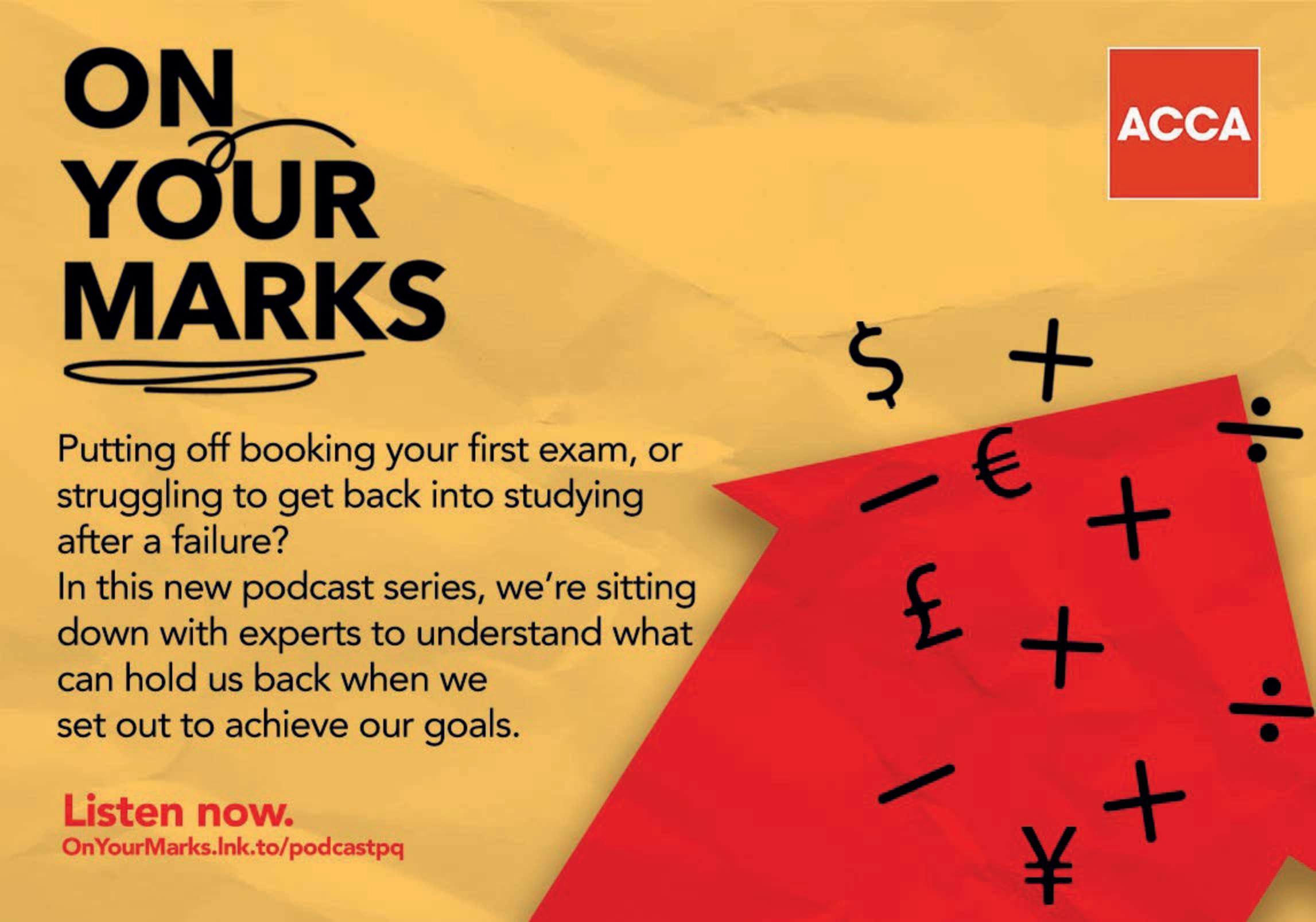
26 PQ PQ Magazine June 2024 ACCA SBL
Creating a better world
We’re sharing the highlights of our plan to support you to help to build a better, fairer and more sustainable world, says ACCA’s Jamie Lyon
It is not just down to governments and large organisations to solve the biggest problems facing our planet today – problems such as climate change, social inequality and a widespread lack of trust. As individuals, each of us also has an important role to play.
Whether you’re a professional accountant or student, you are particularly well placed to make a difference. Here are five ways in which you can make a positive impact that will help to change our world for the better:
Drive the sustainability agenda
Sustainable organisations that create long-term value for society, as well as financial value for their stakeholders, will be the bedrock of the future global economy. Yet despite setting ambitious non-financial goals, including net zero targets, many organisations are still overly focused on short-term, financial metrics and are struggling to transition to more sustainable business models. How you drive the sustainability agenda within your own organisation is likely to depend on the nature of the organisation, as well as your own role within it. Nevertheless, you should have many opportunities to enhance the sustainability performance of your organisation during your daily work.
Understand the benefits of AI adoption
While AI presents some significant societal and environmental threats, it is also potentially a huge force for good. As a professional accountant, you are well placed to help your organisation to understand and capitalise on the benefits of AI adoption, supporting the business case for investment. As part of this process, you can ensure that any AI tools adopted have a valid business use, genuinely benefit the company’s stakeholders, and will help further the journey towards a better, fairer and more sustainable world.

Promote the importance of good ethics
Without good ethics, it will not be possible to build a better, fairer and more sustainable world. Professional accountants hold some of the most trusted positions in our society and their work underpins the effective functioning of the capital markets. Rightly, it is therefore expected that professional accountants will behave ethically – in other words, take the ‘correct’ course of action, even in circumstances when it’s challenging to do so.
Advance an inclusive workplace culture
Innovation will be the route to growth and competitive advantage for the organisations of the future. So, organisations must be able to tap the talents of a broad pool of people – people with different backgrounds, capabilities, experiences, knowledge and skills. The only way that will be able to achieve this is by creating a culture that embraces diversity, equity and inclusion (DE&I).
You can help to advance an inclusive workplace culture within your organisation by thinking about how you practise inclusivity in your day-to-day interactions with others – for example, by ensuring that everyone in the team has an opportunity to speak in a meeting and actively welcoming new ideas.
Develop a continuous learning mindset
To thrive into the future, and to help shape a better world, you will still need your traditional finance skills, the ones that will have stood you in good stead in your career so far. Alongside these traditional skills, however, you will also need to develop new skills, which might include the ability to apply new auditing or reporting standards, interrogate and interpret data, or effectively prompt AI tools.
In light of today’s rapid rate of change, it is essential to develop a continuous learning mindset – a mindset where you are always ready to learn new things and prepared to adapt to changing circumstances. As well as gaining additional credentials and qualifications, you can nurture this mindset by seeking out mentors and new professional experiences.
A better, fairer and more sustainable world cannot be taken as a foregone conclusion. It will only happen if we make it happen. ACCA believes that if we all work together, we can change the world. You can play your part in this hugely important endeavour by following this five-point impact plan.
Read the full plan here
• Jamie Lyon is head of skills, sectors and technologies at ACCA

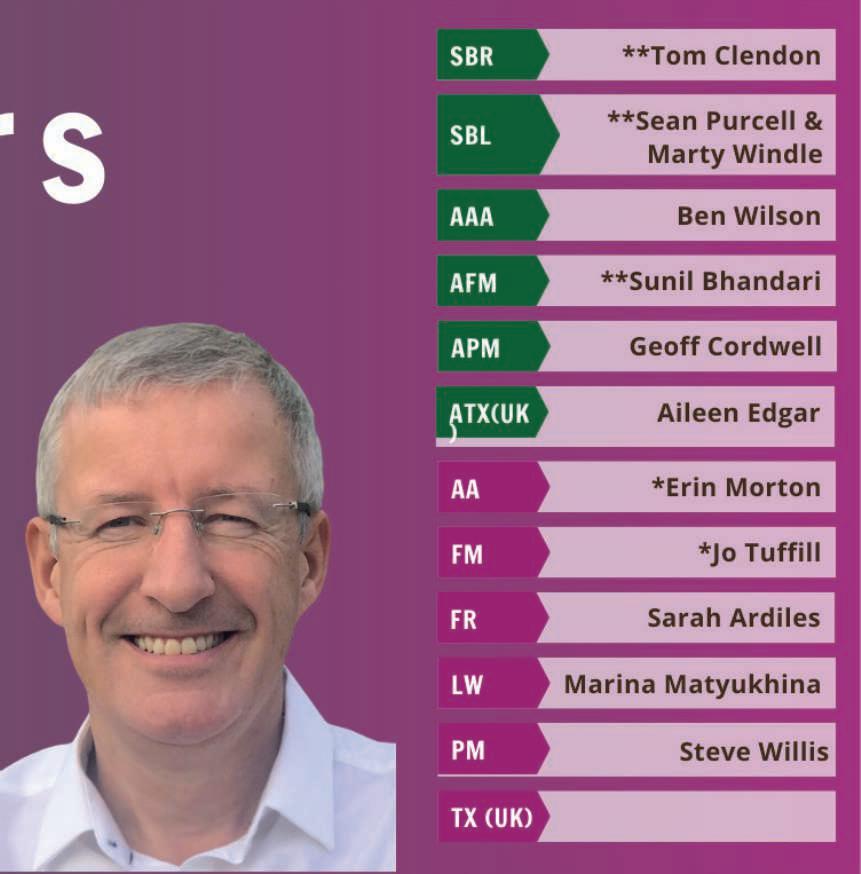

PQ 27 PQ Magazine June 2024 positive change
More a case of levelling down!
New research from CIPFA discovers councils are not operating on a level playing field
Households in north-east England will pay £420 more for an average Band D property in council tax in 2024/25 than those in Greater London.
A survey of 215 councils by CIPFA reveals that the average band D council tax in Greater London will be £1,894, while in the north east it will be £2,315. This is in comparison to an England and Wales aggregated Band D property of £2,161.
CIPFA’s Council Tax Survey indicates an average rise of 5.2% in council tax for a Band D property in England and Wales. And, it said this ‘notable rise’ will likely compound cost-of-living pressures for residents.
Except for Greater London, the band D council tax for all areas of the country now exceeds £2,000. It was only in 2021 when north-east and south-west England surpassed this mark for the first time.
CIPFA said a regional breakdown of the data paints a worrisome picture, where poorer areas of the country pay more council tax than wealthier regions. The north east will see an increase of £112.14 in 2024/25, compared with an increase of £105.57 in Greater London.
In 2023, the funding shortfall was particularly evident in three councils (Croydon, Thurrock and Slough) where central government intervened due

to financial distress. These councils were then allowed to raise council tax above the national referendum threshold.
For 2024, two of these authorities – Slough and Thurrock – have continued to be able to increase their council tax above the national referendum threshold. Slough and Thurrock are joined this year by Woking and Birmingham, the largest local authority in Western Europe, which effectively declared itself bankrupt by issuing S114 notices during 2023/24.
CIPFA stressed that at a time when public services are struggling to meet high demand, an increase in council tax will do little to fix the crumbling state of public services across England.


For councils responsible for adult social care, 75% of their income is spent on this demand-led service (see CIPFA’s Financial Resilience Index). This leaves only 25% of a council’s budget for all other services.
Although inflation is reducing, local authorities are still faced with higher running costs. Despite the use of the council tax head room, some councils still need to use reserves to balance their budgets.
Rob Whiteman, CIPFA’s outgoing CEO, said: “In the absence of long-term funding, the rise in council tax is an example of the government’s presiding over a failing funding system. With central government prioritising cuts in taxes and consequent spending cuts, this places more burden on councils to increase the level of council tax by the maximum allowed at a time and many residents will see a reduction in the level of service provided.
“The decision to raise council tax would have been a difficult one, with many people in communities struggling amid cost-of-living challenges. Councils need long-term and sustainable solutions from government rather than short-term tax decision in advance of the election.”
For more go to https://tinyurl.com/n57pmjxc


PQ 28 PQ Magazine June 2024 council tax
YOUR WELLBEING
Maintaining a positive mindset while studying can be challenging. Our wellbeing hub provides a range of resources and podcasts from our wellbeing ambassador to help support you throughout your ACCA journey. Explore ACCA wellbeing hub bit.ly/3ULGPdY
HUB
YOUR JUNE EXAM TIPS
What are the examiners going to examine in June? Well, no one knows apart from them, but we got top tutors at BPP to guide you through each paper.
Performance Management PM
Section A will have 15 two-mark OTQs on a wide range of topics. Expect a mix of calculation and discussion-based questions, note that there are no marks for workings in this section. Good time management is essential as it is easy to get caught up in a tough calculation, which ultimately will only be worth 2 marks. Never be tempted to spend more than 5 minutes on any question in this section.
For section B there are three separate scenarios with five objective test questions on each scenario; each question is worth 2 marks. Questions are not dependant on each other and can be answered in any order. Each scenario could be a mix of topic areas or focused on one topic and will usually consist of two/three calculations and two/three narratives.
In section C there are two 20-mark questions, which could be from, but not limited to: budgetary systems, planning and operational variances, mix and yield variances and evaluation of the company performance (either as a whole, or on a divisional basis). Familiarity with the CBE software is important as you may be expected to use both a word processing and spreadsheet format for your answer. Learn standardised layouts for calculations such as variances, learning curves and limiting factors. This will save you time in the exam and mean that you are less likely to make mistakes. The split of marks tends to be approximately 40% calculations and 60% discussion, so don’t neglect the written elements of this paper. Make sure that you always fully explain your ideas. Interpretation and application are important skills that are tested in this paper so make sure you make full use of the scenarios that you are given in the exam.
Taxation TX (UK)
In section A there will be a wide range of topics tested as there are 15 OTQs. Tutors expect at least a couple of these OTQs to be devoted to the administration of income tax and corporation tax. So, candidates should ensure they are comfortable with the following:
• Due dates for the payment of income tax (including payments on account).
• Due dates for the payment of corporation tax (including instalments for large companies).
• Filing dates for the income tax and corporation tax returns.
• Penalties and interest for late payments and returns.
Other topic areas likely to be tested in section A of the exam are:
• VAT rules on registration, impairment loss (bad debt) relief, and the SME schemes relating to cash accounting, annual accounting and flat-rate schemes.
• Inheritance tax due on lifetime transfers both in the donor’s life and on death.
• Statutory residence tests for individuals.

• Identification of groups of companies for corporation tax loss reliefs and gains.
• Trading loss reliefs for both companies and sole traders.
In section B the questions will be similar to those of section A, but there will be a longer scenario to deal with. This means a slightly different exam skill is necessary as you have more information to work through, and each OTQ will require you to find the relevant information or data in that scenario. It is not a difficult skill, but you must practise an extensive range of section B questions from the practice and revision kit before attempting the real exam.
In section C you will face the longer, constructive response questions with scenarios and much more open requirements. Your answers will need to show not just sound technical knowledge, but also the application of that knowledge to the question you have been asked.
At least 50% of your revision time should be spent answering the section C questions in the practice and revision kit to build confidence and speed in a way that will also maximise marks.
1. Remember to learn your income tax and corporation tax pro formas.
2. Calculations which require no more than two or three entries into your calculator can be included in the relevant cell of your pro formas (e.g. time apportioning a salary). Calculations which are more complex (e.g. company car benefits) need separate workings which are properly referenced (W1, W2 etc) and have a heading. Use the cell formulae to link the workings answer into your pro forma – then if you change the working the main body will be automatically update.
3. Attempt the narrative parts of the requirement – aim for as many sentences
as there are marks, with each sentence containing something technical. Keep your paragraphs to no more than 3 sentences long.
4. Your exam will be in the CBE software and the spreadsheets have some differences to the software you may be accustomed to, so it is crucial you practice using the CBE software, especially for section C type questions.
5. Remember you cannot insert rows into the CBE spreadsheets. So, leave plenty of space on the page (especially when setting up proformas). You may need to add something in and you can always go back and move workings up the page. Show workings down the page, rather than across the page as it makes them easier to mark. Well-spaced answers are also easier to mark – and you always want to keep the marker happy.
We know that the two longest questions will focus on income tax and corporation tax. These are likely to include the following:
• Employment benefits.
• Property income.
• Relief for pension contributions.
• Adjustments to profit to arrive at trading income for both companies and sole traders – in past sittings we have seen a number of questions whereby you have to correct errors in computations included in the scenario.
• Capital allowance computations.
• Chargeable gains calculations.
Finally, remember the pass mark is 50% so you don’t need to be perfect. If you don’t know something have a guess and move on. Sometimes you have to do that in order to get follow through marks in section C questions. If you make a mistake, but then use that incorrect figure later in a subsequent calculation, Continued on page 30
PQ 29 ACCA exam tips PQ Magazine June 2024
then that’s fine – you can only lose the mark once. In sections A and B never leave an OTQ unanswered – have a guess if you don’t know the answer. It might be right!
Financial Reporting FR
Section A:
• 15 two-mark OTQs on a wide range of topics, including areas such as consolidation and interpretation of financial statements that will be covered in detail in section C.
• Expect a few questions on non-core areas (e.g. sustainability).
• Read the scenario, requirement and answer options carefully and ensure you capture the correct information from the scenario to answer the requirement.
• Don’t leave any questions unanswered –there is no harm in guessing if you are unsure of the correct answer. There is no negative marking.
Section B (case questions):
• Three separate scenarios with five OTQs on each scenario; each question is worth 2 marks.
• Each scenario could be a mix of topic areas (for example revenue and receivables are often related, as are PPE and leases) or focused on one topic and will usually consist of two/three calculations and two/three narratives.
• Questions are not dependant on each other and can be answered in any order.
Section C (constructed response questions):
• Two 20-mark questions, one covering interpretations of financial statements and the other preparation of financial statements.
• One question is likely to be in the context of a single company and one in the context of a group, so you could be faced with a single company interpretation and a groups preparation or vice versa.
• Both questions will require knowledge from other areas of the syllabus, particularly the accounts preparation question which will have a range of adjustments covering various areas.
• Accounts preparation questions may require full financial statements or extracts – read the requirement carefully. Students can expect questions on statement of profit or loss and statement of financial position, but should not forget comprehensive income, the statement of changes in equity, and the statement of cash flows.
• A single entity accounts preparation question from a trail balance or restatement of given financial statements with common adjustments being for depreciation, revaluation and current/deferred tax (including deferred tax on revaluations) plus a mixture of adjustments on other syllabus areas e.g. leases, substance over form issues, financial instruments (change in fair value or amortised cost), share issues, government grants, inventory valuation, and revenue recognition.
• Group accounts preparation questions will provide the separate financial statements (or extracts thereof) of the parent and relevant subsidiary(ies) and associate. Candidates should be prepared to set out the standard workings for goodwill, non-controlling interests, movements in net assets, retained earnings as those are commonly examined. Other common adjustments are intragroup sales of goods, intragroup sales of assets, dividends and fair value adjustments.
• ACCA has previously clarified that a consolidation financial statements preparation question could include up to two subsidiaries and one associate which allows additional scope for examining the disposal of a subsidiary (including as a discontinued operation).
• Candidates continue to find the interpretations question challenging. In both single entity and group interpretation questions, candidates must avoid making generic statements about the movement in ratios and instead focus on using the information in the question to, for example:

identify key changes in the period (e.g. change in sales mix, closed down an operation, purchased a new subsidiary); identify transactions that would cause inconsistencies between periods or between balances (e.g. revaluation of assets for the first time, particularly if the revaluation was at the end of the period); identify any changes in accounting policies or estimates, or classification (e.g. one company presents expenses as part of cost of sales whereas another presents as part of administrative expenses).
• ACCA has previously clarified wording to emphasise the importance of the statement of cash flows in interpreting financial statements.
Audit & Assurance AA
In section A there will be three mini-case style scenarios, each with five 2-mark questions based on the scenario (total 30 marks). Each mini-case question will test single topic areas of the syllabus and so will test syllabus areas A, B, C, D or E. Expect questions in section A to focus on areas A and E.
All three questions (one 30-mark and two 20-mark questions) in section B will be broken down into sub requirements and be scenario based. The majority of marks in each question will test syllabus areas B, C and/or D.
Areas expected to be tested in questions 16 to 18 include:
• Audit planning.
• Audit risk (identification and explanation of audit risks from a scenario and explanation of the auditor’s response to each risk).
• Internal audit.
• Internal controls (identification and explanation of deficiencies in internal control and the recommendation of suitable internal controls, and identification and explanation of direct controls and description of test of control).
• Audit procedures (substantive procedures and tests of controls).
General advice: Where questions are based on a scenario it is essential that you use the information in the scenario to score the identification marks and then develop this to score the explanation marks.
The exam often provides a table for you to complete your answer. For example, audit risk questions will have a table with two columns, one for ‘audit risk’ and one for ‘auditor’s response’ with each properly explained point being worth one mark. Using this tabular approach encourages you to answer both parts of the question, therefore maximising your marks.


PQ 30 ACCA exam tips PQ Magazine June 2024
Continued from page 29 Registered Tuition Provider
Pay attention to the verbs used in question requirements as these indicate the number of marks available. For example, the verb “explain” requires a sentence and will score one mark if properly explained whereas the verb “list” simply requires you to list out information with no further explanation and this will score 0.5 mark per point.
Finally, it is essential you read the Examiner’s Reports which are issued twice a year after the June and December exam sittings. These are an invaluable source of advice and provide a sample section A OTQ case style question as well as three constructed response questions from the March/June and September/December sittings. Not only do they provide the example questions but these are accompanied by a commentary from the examining team, which gives guidance on interpreting the question requirements and common mistakes/areas of weakness noted during the marking process. These reports can be found on the ACCA website: https:// www.accaglobal.com/gb/en/student/examsupport-resources/fundamentals-exams-studyresources/f8/examiners-reports.htm
Financial Management FM
Questions in section A will often be knowledge based (testing your knowledge of key technical terms), and will balance out the questions in section B and C of the exam to make sure that all aspects of the syllabus are examined. It is also likely that these questions will test your understanding of financial management and objectives (ratio analysis), as well as the economic environment and financial institutions topics (financial intermediation, fiscal and monetary policies).
Section B consists of three 10-mark mini case studies. The case study will then be broken down into 5 separate 2-mark MCQs (so 15 questions in total). Areas expected to be commonly tested in this section are working capital management (e.g. the operating cycle, the impact of a change in credit period or accepting a factor’s offer), business or security valuations (e.g. methods of valuation), and financial risk management (currency risk and interest rate risk).
Section C’s two 20-mark questions will be broken down into sub requirements and be scenario-based. These two questions will focus mainly on syllabus sections C, D and E. Section C is working capital management, section D is investment appraisal, and section E is business finance. Whichever of these three topics does not feature in section C is likely to appear in section B of the exam.
Questions from syllabus section C (working capital management) are likely to be broad ranging, so a good broad knowledge of this syllabus section is important. Candidates are sometimes exposed by a weak understanding of working capital finance.
Questions from section D (investment appraisal) are likely to feature NPV with inflation and tax, however it is important to also be able to answer questions that include risk, leasing, asset replacement and capital rationing.
Section E (business finance) questions often either feature an evaluation of financing options (interest coverage and gearing ratios are likely to
HEALTH WARNING
good idea. Rather than relying on formulas in the spreadsheet cells, it will be helpful to the marker if you type out any calculations separately so that they can easily follow what you have done and therefore award any ‘own figure’ marks available if you have made a mistake.
• You also need to make it clear in the spreadsheet whether your adjustment should be added or subtracted, otherwise you will not be able to gain the marks for that adjustment.
• There are no marks available in the spreadsheet for a total column, so don’t waste your time adding the spreadsheet up.
These tips should only be used in conjunction with proper study. We cannot guarantee that these topics will appear in the actual exam as we have not seen the exam papers. Examiners are not predictable so it is vital that all core syllabus areas are revised fully.
be important here) or calculation and analysis of a company's cost of capital.
Strategic Business Reporting SBR
It is vital that you read the examiner's approach article on the ACCA website. ACCA has also published several exam technique and technical articles that you should read as part of your exam preparation. These are available in the SBR exam support resources section of the ACCA website www.accaglobal.com
The exam section A will be 2 questions, worth 50 marks in total – both are compulsory.
Question 1 - 30 marks:
• Q1 will be based on group accounting. Be aware that this question may test any aspect of group accounting, including consolidated statements of cash flows, foreign subsidiaries and associates and JVs. This question will include a pre-populated spreadsheet containing a consolidated statement which you will have to adjust for information given in the scenario. The requirement related to the pre-populated spreadsheet will be worth between 10 and 14 marks.
• Usually, the spreadsheet will require adjustments for amounts you have calculated or explained earlier in the question, if this is the case, an efficient way of tackling the spreadsheet is to make the required adjustments as soon as you have calculated or explained the issue in that part of the question, rather than wait and do all the adjustments together.
• In the spreadsheet, you should lay out your answer as clearly as possible. Using a separate column for each adjustment is a
• Time-keeping is key to passing this question. A recent examiner report identified that students were spending too long writing detailed answers to the first parts of Q1 and then not attempting the later parts. The marker cannot award more than the allocated number of marks for each part of the question, so to maximise your marks, you must make sure you attempt each part of the question. Make sure you work out the time you have available for each question, and for each part of the question and then stick to it.
Question 2 - 20 marks, including two professional marks:
• Q2 will cover the reporting and ethical implications in a given scenario. Make sure you consider any threats to the fundamental principles of ACCA's Code of Ethics and Conduct in your answer.
• Two professional marks are available in this question and going forward the examiner has stated that the question will make it clear what these marks will be awarded for.
Section B will be two questions (compulsory), worth 25 marks each:
• Section B can deal with any area of the syllabus and may be based on a short scenario, a case study with several parts, or an essay.
• Section B will always include a question or part-question involving the analysis or appraisal of information from the perspective of a stakeholder. Make sure you have a go at answering this question. There is no 'right' answer at this level – marks will be awarded for sensible points that have been applied to the scenario.
• There are two professional marks available for the question that covers the stakeholder's perspective. To gain these marks, you must discuss the issue from the perspective of the stakeholder – e.g. if asked for the investor's perspective, you must answer from the investor's perspective!
• Current issues are usually examined in section B as a part of a question (not a full question). However, current issues could be examined in either section A or section B of the exam. A question on current issues may require the application of existing accounting standards to a current accounting issue – for example, accounting for cryptocurrency, accounting for the effects of a natural disaster, or global event.
PQ 31 ACCA exam tips PQ Magazine June 2024
Continued on page 32
General advice: Make sure you plan your time at the beginning of the exam (and stick to it) to ensure you don't over-run on a particular question – it is 1.95 minutes per mark (or 1.8 minutes per mark if you allocate 15 minutes to reading the paper).
Generally, you will be awarded 1 mark for each relevant well-explained point in the SBR exam. Make sure you make enough points for the marks available – for example, if the requirement is worth 8 marks, you should aim to make 8 relevant, well-explained points.
It will be easier for the marker to award you marks if you lay out your answers clearly, leaving space between your points. You can use the spreadsheet (and spreadsheet functionality) to do calculations. If you do use the spreadsheet, make sure you cross reference to any narrative discussion, if appropriate.
Some requirements state that you do not need to refer to an exhibit to answer that particular requirement. Where this is the case, then it is recommended that you follow that advice and stick to general discussion, rather than referring to the scenario.
Use the 'cut' and 'paste' tools wisely – e.g. do not cut and paste into your answer large sections of the exhibits as the examiner has stated in a recent examiner's report that this will be obvious to the marker, and will gain no marks. If you wish to use cut and paste, the examiner recommends just copying and pasting relevant parts of sentences and then adding your own comments.
Strategic Business Leader SBL
For exam sittings up to June 2023, the SBL exam had a duration of 4 hours, and no preseen information was provided in advance of the exam. However, this all changed from September 2023, and so a new format applies:
• The exam will be 3 hours and 15 minutes in duration.
• You will be issued with pre-seen information two weeks in advance of the exam.
• Further information, and the question requirements, will be given to you in the exam itself.
ACCA has indicated that the information in the pre-seen will not be examined directly, but will provide context and background for the exam questions (for example, the industry in question, the organisation’s history and background, board structure, KPIs, and competitor information). You need to be familiar with this information before you begin the exam.
The exam will focus on one main organisation (which has been introduced in the pre-seen information), and the question requirements will relate to that organisation. The exam will contain some additional exhibits (typically four or five) and the questions will be based on these new exhibits.
The questions in the exam are referred to as ‘tasks’. There will be three tasks in the exam, although these may include sub-tasks. All of the requirements (tasks; sub-tasks) in the exam are compulsory. Question requirements in the exam could assess and link several subject areas across the syllabus and will test your ability to construct appropriate responses to practical problems an organisation is facing.

Every SBL exam will consist of 80 technical marks and 20 Professional Skills marks. Each professional skill will appear once per exam, for four marks.
General advice: The SBL exam is demanding, and as such you need to give careful consideration to how you will manage your time to make the most effective use of it. You are recommended to spend about 20 minutes reading the exhibits and starting to plan your answers (for example, identifying the exhibit, and information, which is most relevant to each task). This then leaves you 2 hours 55 minutes (175 minutes) to tackle each task. Since there are only 80 technical marks, this works out at 2.2 minutes per technical mark. So, if a task has 15 technical marks, and 4 professional skills marks, you should spend 33 minutes on it (15 × 2.2). No time is allocated for professional skills marks, as you earn the 20 Professional Skills marks by virtue of the way you attempt the 80 technical marks. It is important to note that you can spend longer than 20 minutes reading and planning your answer if you choose to.
The 20 minutes – 175 minutes split is just a recommendation. However, if you choose to spend longer on reading and planning then you will need to bear this in mind when you come to writing your answers, and adjust your time allocation for each task accordingly.
Regardless of the time allocation you choose, it is crucial that you stick closely to your timings, to ensure that you do not spend too long on one task to the detriment of those you are yet to attempt.
Planning your answer: Clearly, if you have gone to the trouble of preparing an answer plan it is important that you use it when writing up your answer. To get the most from your answer plan, it is therefore important that you include as much detail as you think will be helpful when the time comes to write up your answer.
Numerical analysis: Some question requirements may require you to conduct some numerical analysis. For example, you may be asked to analyse the performance of the
organisation feature in the exam, or a potential investment it is considering. When doing numerical analysis, though, it is important that you focus only on performing any calculations that are going to support your answer and provide you with something to talk about. Producing lots of unnecessary calculations for the sake of it will not earn marks, and will only serve to waste time in the exam.
Using computer software: Ensure you practise timed exam questions using the ACCA CBE software. You need to be comfortable reading and highlighting the exhibits on the screen, as well as taking notes in the scratch pad. It will be easier if you plan your ideas and set up your answer structure in the software, in the form of headings. The exam software comprises a word processor, a spreadsheet, and some presentation software. The word processor should be used for discursive answers (e.g. reports; memos; letters) and is likely to be used for answering most of the tasks. Any calculations you perform should be in an appendix in the spreadsheet software. Tasks requesting slides should be completed in the presentation software.
Appropriate use of theoretical models: To stand the best chance of passing the SBL exam, you will need to have a good understanding of the entire syllabus. However, it is important to remember that tasks in the SBL exam will not ask you to simply regurgitate your knowledge of a particular topic or theoretical model. The task requirements test your ability to apply your understanding of the topics covered in the SBL syllabus in the context of the question scenario (for example, in order to provide advice to the Board about how to respond to a particular situation or issue). Furthermore, tasks will not specifically ask you to use a particular model. Whether you use a theoretical model when constructing your answer will be a matter of judgement that you need to weigh up in the light of the information presented to you in the exam. Doing plenty of question practice in the lead up to your exam is the most effective way of developing your judgement in this area.
Technical marks and Professional Skill marks: Technical marks relate to the knowledge which you demonstrate and apply in your answer.
There are 80 technical marks on offer in the exam. The 20 Professional Skills marks are awarded for displaying the following skills and behaviours: Communication, commercial acumen, analysis, scepticism, and evaluation. Every Professional Skill will be tested in every SBL exam sitting. The Professional Skill being tested will be specified under each question requirement. As you prepare to attempt the exam it is crucial that you take the time to attempt as many practice questions as you can. To increase your chances of exam success you need to ensure that you take sufficient time to develop your understanding of the Professional Skills.
Advanced Performance Management APM
Q1 section A:
Q1 of the APM exam will focus on a range of issues from syllabus section A (strategic planning and control), section B (performance measurement systems and design) and section C (strategic performance measurement).
PQ 32 ACCA exam tips PQ Magazine June 2024
Continued from page 31
Section A (50 marks) contains one question broken down into sub requirements. You will often be required to link a business’s mission to its performance objectives using the concept of CSFs and KPIs. You may well also have to critique and recommend improvements to performance reports and the balanced scorecard and/or information systems could well be tested in this context.
Assessing the performance of an organisation is likely to be tested and this could include benchmarking as a theme. Financial performance measures (ROCE/RI/EVA etc) are also likely to be examined in this context, but don't neglect non-financial issues from syllabus section C such as quality management, value for management and reward systems.
Q2-3 section B:
ACCA have said that one of two section B questions will come from syllabus section D (performance evaluation). This means you need to have sound knowledge of the balance scorecard, building block and performance pyramid models. In addition you will also need to have a good working knowledge of activity based management (ABM) and value based management (VBM).
The other question can be sourced from a variety of syllabus areas including quality management, information reporting (e.g. big data, lean information), HR frameworks (e.g. reward & appraisal systems), transfer pricing
and environmental management accounting. General advice: APM is primarily a skills-based exam which tests the ability to apply knowledge to practical problems. This is now even more important as 20% of the marks are awarded for professional skills. Make sure you aware what these skills are and that you are confident in your ability to integrate these into your answer to the technical requirements of a question. However, application of knowledge is only possible if you have a good range of technical skills in place. So, even though APM is not about reciting technical knowledge, it is absolutely vital that you ensure that you have a good broad knowledge of core technical areas.
Advanced Taxation ATX (UK)
The exam will comprise of one compulsory 50-mark question within section A. The requirements will be detailed in the manager’s email marked ‘work to be carried out’ and there will be several exhibits containing further information. The answer will need to be prepared in a specific format as set out in the manager’s email which will include mark allocations for the sub-requirements. Due to the size of the question it is possible that the scenario could involve more than one client or a personal client in addition to a corporate client. The question will comprise of 35 technical marks, 5 ethics marks and 10 professional skills marks. Each of the four professional skills will be tested. Section B will comprise of two compulsory
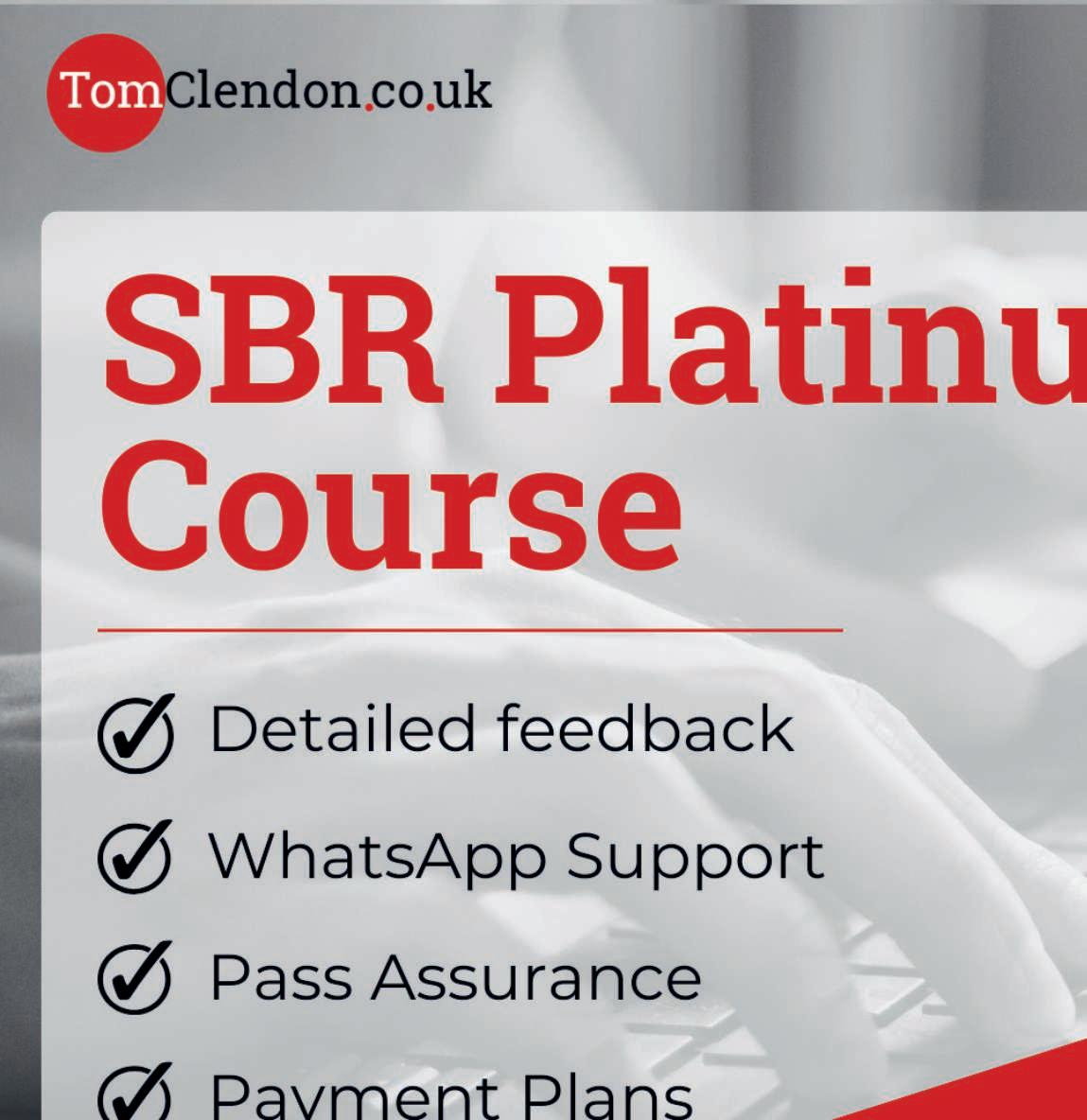
25-mark questions. These will be in a more succinct, note form style, and will comprise of 20 technical marks and 5 professional skills marks. A minimum of two of the three professional skills will be tested in these questions (not including communication).
The exam will test candidates’ ability to analyse and evaluate the tax implications of various situations, numerical calculations will only be required to assist in producing an answer and no purely numerical questions will be set. Due to the introduction of the professional skills marks, students will now have more time to attempt each question than under previous sittings. The ACCA has stated that the additional professional skills marks should not be considered as additional requirements but that the extra time they allow should be used for planning and thus to prepare a more comprehensive answer.
Topics/scenarios we would expect to see are:
• Personal income tax scenarios which could involve: investing in a pension; investing in EIS, SEIS or VCTs, share schemes; employment income possibly with termination payments; a personal service company; property income or a takeover.
• Unincorporated business – particularly including loss reliefs, partnerships or basis period rules.
• A question focussing on overseas issues –
Continued on page 34
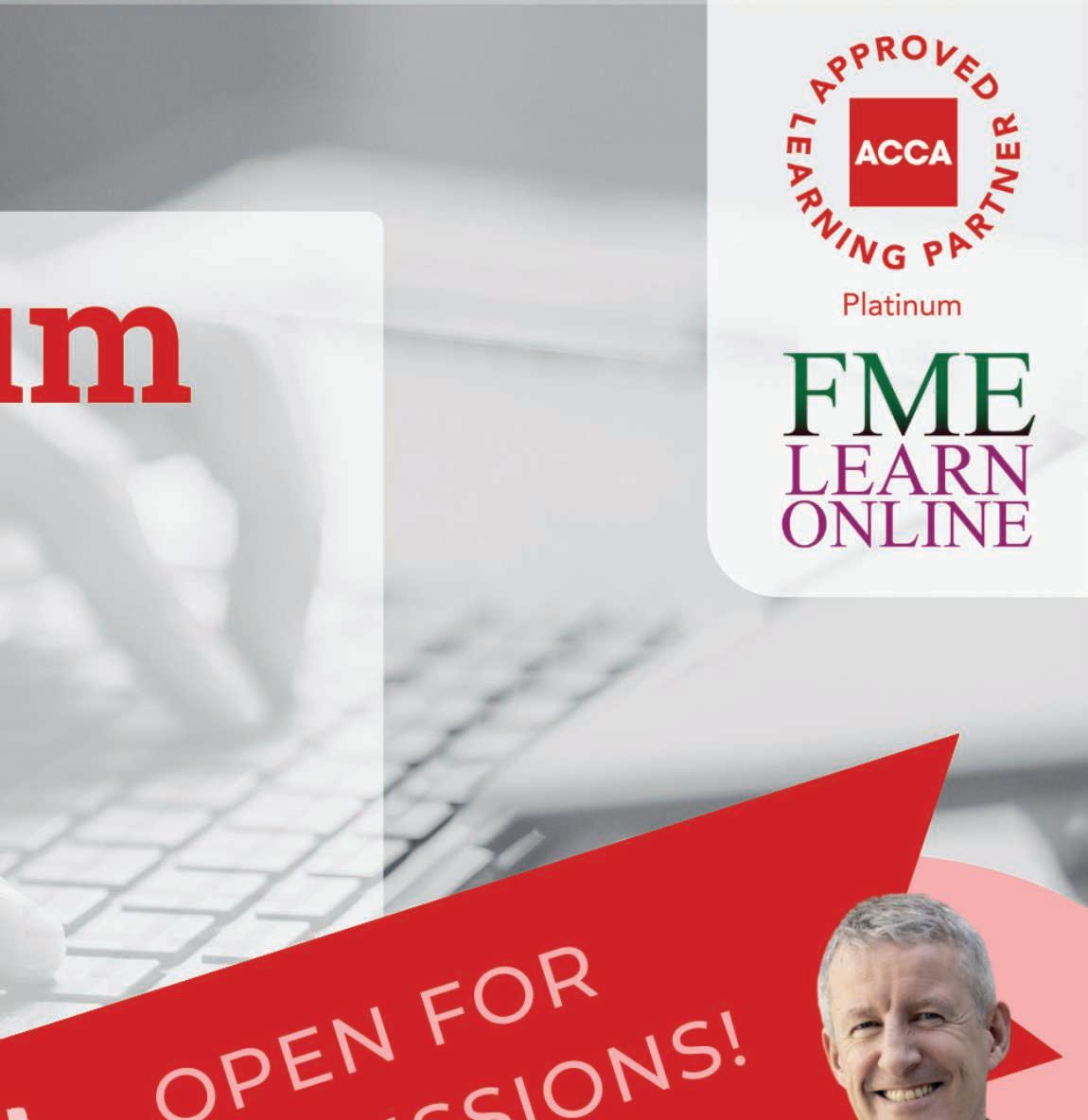

PQ 33 ACCA exam tips PQ Magazine June 2024
this could be income tax, capital gains tax, inheritance tax or a corporate scenario.
• Capital gains tax versus inheritance tax including availability of reliefs.
• Corporate scenarios – likely to focus in more depth on intangibles; research and development; losses; corporate groups or consortia.
• Special corporate scenarios such as liquidation; purchase of own shares; close or investment companies.
• A business transformation scenario question such as selling a sole trade business, incorporation, or, in a corporate context, the sale of shares versus the sale of trade and assets.
• Other common types of question/calculation to expect are:
• Reviewing a pre-prepared computation to spot, explain and correct errors.
• Calculations such as “tax saved through an action”, “after-tax proceeds”, “the value of a post-tax inheritance”, “net spendable income” or the “net of tax cost of something”.
Don’t forget that across the scenarios you can expect to see VAT marks available. Partial exemption rules, VAT on land & buildings, transfer of going concern, the capital goods scheme, overseas VAT transactions, and registration/group registration/deregistration tend to be frequently examined.
There will also likely be a couple of marks for stamp duty points if you remember to think about it in your planning!
Finally, don’t forget your basic administration points are also likely to be examined – when do we need to pay tax, when do we file a return and what if either of those are late?
Advanced Audit & Assurance AAA
Recent AAA exams have contained no real surprises, although you should be prepared for the look and feel of the embedded email and supporting exhibits and the split of both technical and professional skills marks.
Section A will comprise a case study, worth 50 marks, split into 40 technical marks and 10 professional skills marks, and will be set at the planning stage of the audit, for a single company, a group of companies or potentially several audit clients.
Candidates will be provided with detailed information, which will vary between examinations, but is likely to include extracts of financial information, strategic, operational, and other relevant information for a client, as well as extracts from audit working papers, which could

include the results of analytical procedures. The date will be set as 1 July 20X5.
Candidates will be required to address a range of requirements, from syllabus sections A, B, C and D, thereby tackling a real-world situation where candidates may have to manage a range of issues simultaneously in relation to planning, risk assessment, evidence gathering and ethical and professional considerations.
Ten professional marks will be available in section A and will be awarded based on the demonstration of professional skill within a candidate’s answer, including communication, analysis and evaluation, professional scepticism and judgement, and commercial acumen.
Section B will contain two compulsory 25-mark questions, with each being predominately based around a short scenario. The marks will be split into 20 technical marks and five professional skills marks. There are no optional questions in AAA.
One question will always test syllabus section E, and candidates should therefore always be prepared to answer a question relating to completion, review, and reporting. There are a number of formats this question could adopt, including, but not limited to, matters to be considered and evidence expected to be on file, a going concern assessment, the impact of subsequent events, evaluating identified misstatements and any corresponding effects on the auditor’s report. Candidates may also be asked to critique an auditor’s report or a report which is to be provided to management or those charged with governance.
The second section B question can be drawn from any other part of the syllabus, including sections A, B, C, D and F. Syllabus section G on current issues is unlikely to form the basis of a question on its own, but instead will be incorporated into the case study or either of the section B questions depending on question content and the topical issues affecting the profession at the time of sitting the exam.
Five professional marks will be available in each Section B question for demonstrating professional skill in analysis and evaluation, plus at least one of professional scepticism and judgement and commercial acumen.
General advice: This subject often tests topical issues which have been covered by the examining team’s technical articles (e.g. quality management in September 2022 and the impact of data analytics in September/December 2020). From September 2023, as well as changes to auditing standard relating to group audits and the reliance on component auditors’ quality, there has also been an increased focus on sustainability reporting. All the examining team's technical articles can be found online, including two recent
articles on quality management, two articles on planning questions and risk, plus another two articles that discuss recent developments in social, environmental and sustainability reporting and one on the proposed international standard on sustainability assurance. There is also a ‘tricky topic’ video on quality management, audit procedures, and prospective financial information (forecasts). Read/watch them!
Advanced Financial Management AFM
All AFM exams will have questions which have a focus on section B of the syllabus (advanced investment appraisal) and section E (treasury and advanced risk management techniques). These syllabus areas are therefore high priority areas for your revision.
Q1 (50 marks):
You can expect questions to cover at least two different syllabus areas. This emphasises the importance of having a good broad knowledge of the syllabus and not targeting your final exam revision on a small number of syllabus areas.
Questions are often based on core syllabus areas such as: project appraisal (domestic or overseas), business valuations and business/ financial reorganisations; these areas often include cost of capital calculations.
Risk management may also feature in a number of different ways, e.g. value at risk, real options, interest rate or current hedging, and risk management (e.g. mapping).
Q2-3 (25 marks each):
Areas to be tested:
• Risk management (currency or interest rate) including the functions and structure of a treasury department.
• Dividend policy and general financing issues.
• Real options, including limitations of approach.
• Business reorganisation.
General advice: The examining team have stressed that exams are designed to make question spotting extremely difficult for this paper, so it is important to have a broad understanding of the key aspects of each syllabus area. Don't over-emphasise numerical analysis in your final revision – remember that this paper is not a maths exam and, in all exam questions the examiner is interested in your ability to communicate well and to give good management advice that relates to the scenario in the question. This is now even more important as 20% of the marks are awarded for professional skills. Make sure you are aware what these skills are and that you are confident in your ability to integrate these into your answer to the technical requirements of a question.

PQ ACCA exam tips PQ Magazine June 2024 34
Continued from page 33 Advance your career with a Mindful Education course or apprenticeship Discover more at mindful-education.co.uk/learners

FIND A COURSE


Save time to find your next accountancy course with PQ Coursefinder.
Go to www.pqmagazine and click on the COURSEFINDER bar.
Find a course with a top provider that ticks all your boxes. Save money. Save time. Use PQ magazine’s Coursefinder.
we are on your side
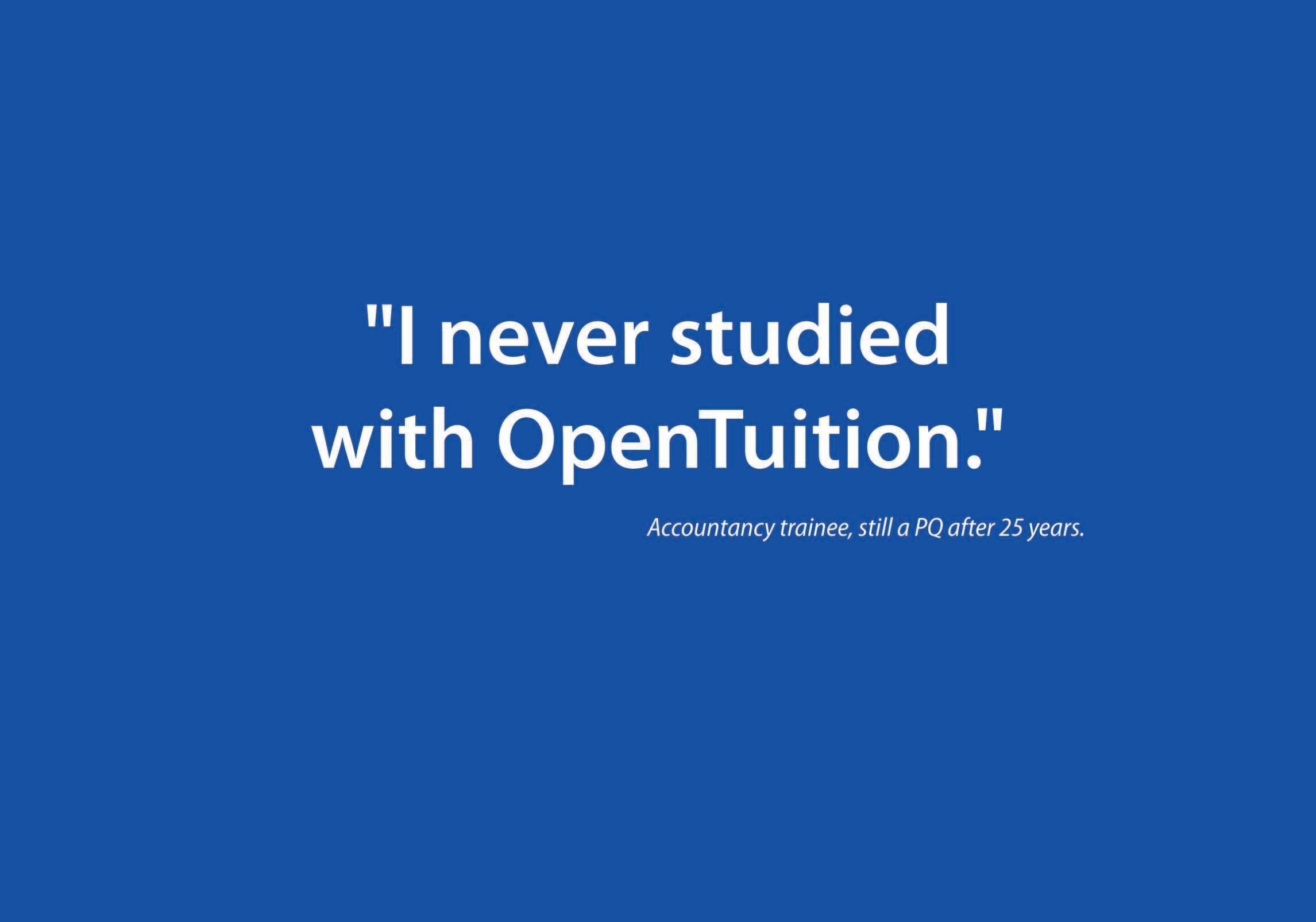
Empowering global giving
CIPFA and Humentum are leading efforts on the first-ever international non-profit accounting guidance (INPAG), writes
Karen Sanderson
In April, thousands of people rolled out of bed early, many zipped up costumes and all laced up their shoes, in anticipation of hitting the tarmac to take on the London Marathon.
Most runners raised money for the charitable causes, but while not everyone wants to embrace the physical challenges of a grueling, albeit inspiring, 42-kilometre run, many people donate their time in other ways. This may be by volunteering at a food bank, helping to clean waterways, supporting the vulnerable, acting as a trustee or offering professional business services.
We volunteer because we want to support the objectives of non-profit organisations. We believe in what these organisations are trying to achieve. Their aims align with our own beliefs and values, and we may want to give back to society by sharing our knowledge and experience. Fundamental to this willingness to participate is trust. We trust in these organisations to use their resources, including our donated time, for the purposes that they have defined.
This trust is aided by the high-quality financial reporting standards for non-profit organisations in the UK; be they charities, housing associations or education bodies. These standards support transparency as a key feature in building and maintaining trust.
Sadly, the same cannot be said when we look at the global picture. Financial reporting standards specifically for non-profit organisations are few and far between. In fact, the majority of countries across the world lack specific guidance for non-profit organisations. This means that these countries are unable to address the specific financial reporting needs of non-profit organisations, such as accounting for grants and donations. And this is despite the fact that grants and donations are the lifeblood for many.
Bridging the gap
To help build trust, inspire action and keep the wheels turning, the accountancy profession has an important role to play.
Chartered Institute of Public Finance and Accountancy (CIPFA) is responding to this deficit. Working jointly with Humentum on the IFR4NPO project, the first-ever international financial reporting guidance for non-profit organisations is being developed. Funded by philanthropic

donations and to be published next year, this guidance will address the most pervasive issues encountered by non-profit organisations globally.
Following a Consultation Paper issued in 2021, CIPFA and Humentum sought feedback on sector issues. CIPFA has used the responses to develop draft guidance for feedback in the form of three exposure drafts:
• Issued in November 2022, Exposure Draft 1 focuses on the framework underpinning the guidance.
• Issued in September 2023, Exposure Draft 2 focuses on the accounting issues, including grants and donations.
• To be released on 28 May 2024, Exposure Draft 3 focuses on the presentation of financial information.
Exposure Draft 3 is the finale. It sets out proposals for the presentation of expense information, providing much-needed transparency surrounding the use of resources, including support costs and fundraising activities. This final public consultation also sets out proposals for fund accounting. This is essential where those that have provided resources have a legitimate or legal expectation that their resources will be used for a specific purpose. Excitingly, Exposure Draft 3 brings together all the proposals through illustrative financial statements.
Setting standards for donor reporting
Donors clearly care about this work. After all, it is through their grants that much of this work is possible. However, the existence of multiple reporting formats can be problematic. For that
reason, CIPFA and Humentum’s partnership extends beyond the facts and figures of accounting. Also included in Exposure Draft 3 is a set of proposals that offer a route to standardise donor reporting using a defined statement format. This need was exemplified in a UK roundtable held in December 2023, where attendees stressed the varied reporting requirements of donors as a key issue.
Donor reporting matters wherever you are in the world. The donor reporting proposals can help alleviate these reporting burdens and improve transparency for all.
Why should you care?
The organisations that you support may have overseas branches or give grants to other nonprofit organisations that lack financial reporting guidance. This initiative will improve transparency and build the much-needed trust that will ripple throughout the sector globally. Such a positive impact can only improve access to funding, including raising funds in the same way that the inspirational London Marathon runners raise millions for their causes.
To find out more about the first ever International Non-Profit Accounting Guidance (INPAG) and the Exposure Drafts, visit www. ifr4npo.org
Humentum works to make global development equitable, accountable, and resilient through building communities, advancing advocacy and training.
• Karen Sanderson, Technical Director and CIPFA Project Manager for INPAG


36 PQ PQ Magazine June 2024 NPOs
� - ::::.. Sign up online for your free copy of PQ magazine Go to www.pqmagazine.com - simply click on the 'subscribe' button
Dear Karen
Ask PQ’s very own agony aunt Karen Young when you need advice from a real expert. Email your dilemma to graham@ pqmagazine.com, and he will pass on the best ones to Karen
THE DILEMMA
My organisation is going through structural change in terms of teams and roles, so what are your tips for navigating uncertainty in the workplace?
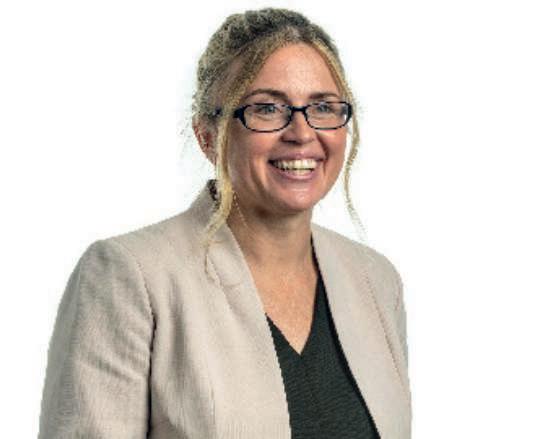
KAREN’S RESPONSE
Whilst change at work can be disconcerting, being able to adapt is an invaluable skill that will help you to deal with change. Here are a few ways to ensure changes in the workplace don’t get the better of you.Rely on a routine to keep some sense of structure and stability, whether that be working out your priorities for the day every morning or taking regular breaks – during times of change stick with the habits that work for you.
Keep lines of communication open with your manager so you feel comfortable asking questions or voicing any concerns, rather than bottling anything up. It’s important to maintain a positive rapport, so you can continue to work productively as a team.
Organisational restructures can take time to unfold and will typically involve some teething issues, so try to be patient and trust that things will work out eventually.
That said, don’t neglect your own needs – ask for transparency, updates and support, and ensure you manage your stress levels by setting aside time for your wellbeing.
Finally, try to understand why such change is necessary; focus on how a restructure could improve your company culture and business outcomes. It can be tough, but try to think positively, embrace change and reflect on how this new chapter will benefit you – there is usually a way!
• Karen Young is a director at Hays. She is passionate about helping people to find the right job and companies the right person
The rise of AI in the boardroom
CEOs love using it, so isn’t it time you started getting help from AI?
More than a third (36%) of senior leaders in the financial services sector use generative AI at least once a day at work, according to new research from KPMG UK.
Of all senior professionals in the sector, CEOs are the most frequent users of generative AI at work (30%). They are using it up to three times a day, mostly for brainstorming (50%) and help with speech writing and presentations (46%).
Despite more than 60% of leaders using generative AI at least once a week in their day jobs, almost a third (31%) aren’t confident that the business overall
In brief
PQ JOB OF THE MONTH: Assistant Accountant
A global firm offering bespoke tech solutions and services to a wide range of organisations has created a new role to manage the accounting for an Indian subsidiary, which has substantially grown over the past few years.
You will be supporting two key senior members of finance with payroll, balance sheet, P&L accounts, transactions and tax, working closely with the external auditors.
Ideally, you will either have worked with a firm that has an entity in India or have relocated from India having dealt with the accounts there.
On offer is a salary of between £35,000 and £38,000 plus
is harnessing the potential of the technology.
Today, financial planning is where most leaders (44%) say
generative AI is being used in their businesses, followed by customer data analytics (38%) and fraud detection (35%). Over the next three years, most leaders call out financial planning (40%), marketing (37%) and fraud detection (36%) as where the tech will be used.
Using generative AI to help fight financial crime aligns with concerns related to its use for criminal intent, as highlighted in another recent KPMG study, which showed that this is the biggest concern among UK adults.
study support. Applications close on 29 May. For more information go to https://tinyurl.com/39vzsvwd
How much?
Salary wars in the legal market mean ‘magic circle’ firm Freshfields has just increased its NQ lawyers’ salaries to £150,000, reports City A.M.
The newspaper said that last November every magic circle law firm was paying their NQ staff a £125,000 salary.
While Freshfields tops the UK salary league table, it’s not the highest in the market! US firm Gibson Dunn pays its Londonbased NQs a cool £180,000 a year.
A first-year trainee at Freshfield gets paid £56,000 (up from £50,000). Second-year
trainees will be paid £61,000.
CFO sacked over relationship
Canada’s largest bank, the Royal Bank of Canada, has sacked CFO Nadine Ahn over an “undisclosed personal relationship” with another employee.
The bank said the relationship was in contravention of its Code of Conduct, and claimed there was a suggestion that the undisclosed relationship led to the “preferential treatment of the employee including promotion and compensation increases”.
Ahn has worked for the RBC for nearly 20 years and was made CFO in 2021. It was a role she held until she was fired on 5 April. Both employees had their employment terminated.
The PQ Book Club: books you should read
The Honest Accountant by Sam Simpson (SPL £7.99)
The Honest Accountant opens with Keith Platt on an audit. Now, we are told Keith is ‘an auditor’s auditor’ and works for the firm Blake and Lander, one of the Big 5 firms. What follows is a wonderful ride as Scottish accountant Tom Mackay uncovers a massive fraud and some suspicious deaths – we are talking more than one here. We can’t tell you what happened to Keith, you will have to read the book for that.
At just 181 pages it meant we read The Honest
Accountant over a couple of days – we couldn’t put it down, it is that good!
This is a book written by an accountant, but this accountant can write and Simpson really draws you into the plot. You can’t help but identify with the characters (most are accountants!). The accountancy bits also fit neatly into the plot, and enhance the story rather than distract from it.
The story is set during the last days of John Major’s government and Simpson weaves this in nicely with the story. There is even an

encounter with the PM in a toilet…
If you are looking for a light read for your hols this is it. If you want more then don’t worry, Simpson has published a follow-up book called High Treason (which we are now reading).

PQ rating 5/5 We just loved this book – now let’s see it on Netflix! It could give Scandi Noir a run for its money. Simpson’s books are available on Amazon in paperback or on Kindle.

PQ 37 PQ Magazine June 2024
PQ
careers
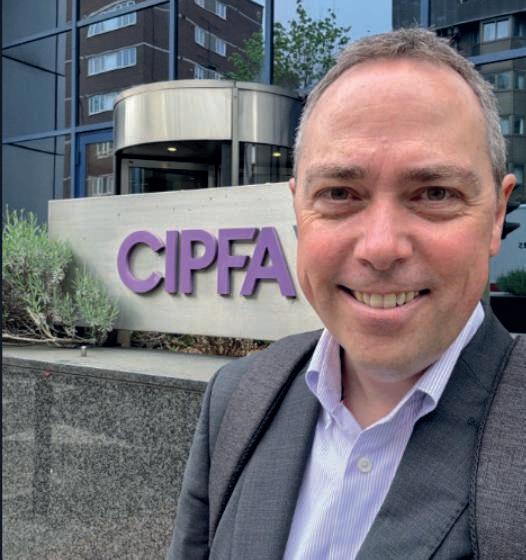
A smiling Owen Mapley!
Owen Mapley, CIPFA’s new designated CEO, visited the institute’s Mansell Street HQ at the beginning of May to start the transition process with outgoing chief Rob Whiteman.
Mapley has spent the past eight years at Hertfordshire County Council, and told his LinkedIn followers it was time for something new.
Apparently, lots of people told him the photo he used to announce his appointment was too stern. So he uploaded a ‘smiley’ picture “to show how thrilled I am to join this wonderful charity and get stuck into the challenges and opportunities ahead”.

Do you need the Samaritans?
Hundreds of taxpayers are being referred to the Samaritans after being pursued by HMRC, according to data obtained by the Daily Telegraph newspaper in a Freedom of Information request.
The tax authority has told 322 individuals to contact the charity since a partnership with the tax office began in September 2022.
The Telegraph explained that HMRC started working with the Samaritans after it emerged that 10 taxpayers had taken their own lives over the loan charge scandal.
Some 60,000 freelancers have been pursued for back payments, sometimes running into hundreds of thousands of pounds, after HMRC cracked down on tax-saving scheme
Dutch most active online

The Netherlands has emerged as Europe’s most active online nation, with the UK securing fifth spot in the ranking, according to research by SEO agency Digital Climax.
Six categories were used to create an online activity score. These included the percentage of individuals using the internet, those that use the internet weekly or more, those using e-commerce, finance or calls, and the percentage of households with internet access.
The Netherlands scored 9.01 out of 10. Iceland came in second on 8.82, with Ireland third on 8.74.
The UK scored 8.42 out of 10. It scored the highest for the percentage of individuals using the internet weekly or more with 99.53%. The UK also came second for the percentage of individuals using the internet with 99.55%, following Norway.
The Accountants do dance

Manchester recently hosted a dance extravaganza, bringing together Chinese and Indian cultures. As it said the promotion publicity: “The Accountants sifts through the clutter of data and stereotypes to reveal profound human connections and celebrated the vibrant tapestry of global culture.”
So what’s it got to do with accountants? We aren’t 100% sure (like Colin from Accounts on TV), but it looked a fantastic show and no one obviously thought calling it ‘The Accountants’ was going to put people off!
Jokes about accountants!
The wonderful Garry Carter of ICB fame sent us a joke about accountants – well, we did ask. And here it is:
Three bookkeepers and a chartered accountant were talking when an unfortunate accident occurred.
Suddenly, the four found themselves at the Pearly Gates. St Peter himself came out to greet them and congratulated them on being chosen for a life in heaven.
He looked at his clipboard and called out the name of the first bookkeeper, and whilst the others looked on, St Peter took the bookkeeper to his accommodation. The bookkeeper was a little surprised that the room was rather small and cramped but St Peter assured the bookkeeper that there had been no mistake, and with that left the bookkeeper to settle in. St Peter twice returned to the group waiting outside the gates, each time calling out the name of the next bookkeeper and each time settling them in to their rather sparse living quarters.
Finally, he returned to the chartered accountant who, having seen the less than favourable accommodation of the former three, asked if he too was going to expected to live out his time in heaven in a similar manner. “Oh no,” said St Peter, and he took the accountant past the small living quarters and walked him up to a much larger and substantial dwelling. ”Wow,” said the accountant. “Is this because I am a chartered accountant?” “Well, yes,” said St Peter. “You see we are at a bit of a loss with you. We get a lot of bookkeepers up here, but you’re our first chartered accountant!”
Did it make you smile?
W E V E G O T T H E L O T

’ And relax!
We have three copies of Relax, the adult colouring-in book, to give away this month. As one of the large print and colour frames says ‘less is more’, and we know giving yourself some ‘me time’ to colour away can help de-stress you. Isn’t it time you plunged yourself into a land of peace and relaxation? There are 31 large prints to colour in on this luxuriously printed thick paper.
To be in the hat to win one of these books send an email headed ‘And relax’ to giveaways@pqmagazine.com along with your name and address.
Book club
We are giving away all the books we have reviewed for the PQ magazine Book Club over the past few months. Up for grabs are ‘Career Confidence: No-BS stories and strategies for finding your power, by Robynn Storey’ ‘Our Way: How Women are re-defining leadership’ by Gaia van der Esch; and ‘The Bookkeepers’ Superhero’ by Natasha Everard.
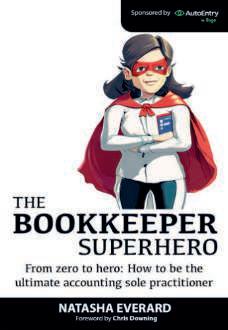
To be in with a chance of winning one of these fab books simply email us at giveaways@pqmagazine.com with your name and address and we will put you in the draw to win this prize. Head up your email ‘Book Club’.
Terms and conditions: One entry per giveaway please. You must send your name and address to be entered for the draw. All giveaway entries must be received by Friday 7June 2024. The main draw will take place on Monday 10 June 2024.
38 PQ Magazine June 2024
TO ENTER THESE GIVEAWAYS EMAIL GIVEAWAYS@PQMAGAZINE.COM PQ the got a story, funny or serious, you want to share? Email graham@pqmagazine.com






















































































































































































































